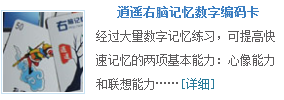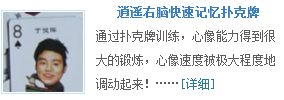【词组】
1. too loud 太大声 2. out of sty le 过时的 3. in style 流行的
4. call sb up= ring sb up=call/ring/phone sb. 给…..打电话
5. enough money 足够的钱(enough修饰名词时不必后置)
6. busy enough 够忙 (enough修饰形容词或副词时必须后置)
7. a ticket to/for a ball game 一张球赛的门票
注意:the key to the lock/the key(answer)r to the question)/the solution to the problem .此处几个短语不能用of表示所有格
8. talk about 谈论 9. on the phone用电话 10. pay for 付款
11. spend…on +sth.=spend...( in) doing sth. 在…花钱
12. It takes sb. sometime to do sth.某人做某事花…的时间
13. borrow …from 从….借( 借进来)
14. lend…to 把…借给(借出去)
15. You can keep the book for a week 你可以借这本书一周。(不用borrow或lend)
16. buy sth for sb 为……买东西
17. tell sb to do /not to do sth.sth 告诉某人做某事
18. want sb. to do sth.=would like sb. to do 想某人做某事
19. find out 发现;查清楚;弄明白
20. play ones stereo 放录象 21. fail the test 考试不及格
22. fail in (doing) sth… 在...上失败,变弱23. succeed in (doing) sth 在...方面成功
24. write sb a letter/write to sb. 给某人写信
25. surprise sb. 使某人吃惊(类似有:surprise/interest/please/amaze+某人)
26. to one’s surprise 使某人吃惊的是… 27. to one’s joy 使某人高兴的是…..
28. look for a part-time job 找一份兼职的工作(不一定有结果)
29. get/find a part-time job 找到一份兼职的工作(有结果)
30. ask sb. for…寻求/向某人要某物 ask sb (not) to do
31. have a bake sale 卖烧烤
32. argue with sb = have an argument with sb. 与某人争吵
33. have a fight with sb.=fight with 与某人打架
34. drop off 离去;散去;逐渐减少;死去
35. prepare for…=get ready for…为…做准备
36. after-school clubs(activities) 课外俱乐部(活动)
37. be/get used to doing 习惯做某事 38.used to do 过去经常/常常做某事
39.be used for doing=be used to do sth. 被用于做某事
40. fill… up 填补;装满… be full of装满
41. return sth. to sb.=give sth. back to sb.把某物归还给某人
42. get on /along well with 与…相处很好
43. all kinds of=different kinds of 各种各样
44. as much as possible=as much as you can 尽可能多
45. take part in=join in参加(某种活动/集会)
46. a bit =a little一点儿(当修饰形容词或比较级时)
47. a bit of =a little 一点儿/一些(当修饰不可数名词时)
48. be angry with…生…的气 49. by oneself=on one’s own某人自己/独自地
50. on the one hand 一方面 51. on the other hand另一方面
52. I find/feel/think it difficult to do...我发现/感到/认为做某事很难.
53.see/hear/watch sb. doing sth. 看到/听见/注视某人正在做…
54. not…until 直到…才(谓语动词一般是非延续动词)
55.表示某人情绪有关的形容词用法:
be/become+ upset/tired/excited/interested/worried/surprised/amazed/annoyed
说明:当主语是某人时,注意后面的形容词一般是-ed结尾的单词,而当主语是某物时或修饰名词时,注意后面形容词一般是-ing结尾单词.)
例如:I was surprised/interested/amazed when I heard the surprising/interesting/amazing news.
56. radio advice program电台提建议的节目 57. be original新颖的
58. leave something somewhere 把某物忘在某处 59. sports c lothes 运动服
60. the same age as=as old as和--- 年龄一样
61. the tired children 疲惫不堪的孩子 62. complain about (doing sth) 抱怨…
63. take their children from activity to activity 带着孩子参加一个接一个的活动
64.try to do sth, 尽量干某事 try doing sth 试着干某事
65. be under too much pressure 压力太大 66. a mother of three 三个孩子的妈妈
67. take part in after-school clubs 参加课后俱乐部
68. compepition starts from a very young age 竞争从很小年纪就开始了
69.compare…with 和---比较 70. organized activities 有组织的活动
【句型】
1. What’s wrong(with you)? =What’s the matter with you?
2. What should I do? 我该怎么办
3. You could write him a letter. 你可以给他写封信 .
4. You should say sorry to him.你应该给他道歉.
5. They shouldn’t argue. 他们不应该争吵.J
6. Why don’t you talk to him about it?
7. Why not talk to him about it? =Why don’t you talk to him about it?.
=What/How about talking to him about it.
8. The parents try to fit as much as possible into their kids lives.
9. Activities include sports, language learning, music and math classes.
Thirty people, including six children (six children included), went to visit the factory.
10. People shouldn’t push their children so hard.
11. Parents are trying to plan their kids’ lives for them. When these kids are adults, they might find t
difficult to plan things for themselves.
【语法】
情态动词的用法
【重难点分析】
情态动词(Modal Verbs )Ⅰ
* 情态动词也可称为“情态助动词 (Modal Auxiliaries)”,因为它和基本助动词(be,do, have)都属于助动词类。
* 情态动词和其他动词连用,可表示说话人的语气。
* 情态动词可表达建议、要求、可能和意愿等。
* 情态动词没有人称和数的变化。
* 常用的情态动词有:can, could, may, might, must, shall, should, will, would这九大情态动词;其他的还有ought to, need, dare 等。
一、九大情态动词的时态关系:
1. 现在式 can -- 过去式 could
2. 现在式 may -- 过去式 might
3. 现在式 shall -- 过去式 should
4. 现在式 will -- 过去式 would
5. 现在式 must -- 过去式 must (常用had to来代替)
二、情态动词表示“可能”或“预测”
(can, could, will, would, shall, should, must, ought to)
(1)can 和 could 用于表示“可能”或“预测”:
1. He can't be at home. (否定句)
他不可能在家。
2. Can the news be true ? (将情态动词 can 置于主语 the news 前就成疑问句)
这消息可能是真的吗?
3. Anybody can make mistake. (只表示理论上的可能性)
任何人都可能犯错误。
(2)may 和 might 用于表示“事实上的可能性”或“预测”:
1. It may rain tomorrow. (表示可能会发生) 明天可能会下雨。
2. It may snow later this afternoon. (表示预测) 今天下午可能会下雪。
3. You might be right. (表示有可能) 你可能是对的。
(3)will 和 would 用于表示“预测”或“习惯性”:
1. I think he will be all right now. (will be 表示一定会) 我想他现在一定好了。
2. That would be his mother.(would be 表示肯定是) 那肯定是他母亲。
3. He will sit there hour after hour looking at the river.(will 表示经常的)
他经常一连几个小时坐在那儿看着河水。
(4)shall 和 should 用于表示“必定”:
1. I shall be rich one day. (shall be ) 总有一天我会发达的。
2. That should be Sam and his mother. (should be) 那准是Sam 和他的母亲。
(5)must 用于表示“必定”,“必会”:
1. This must be good for you.(must be 肯定) 这肯定对你是有益的。
2. Al l mankind must die.(表示必然会发生的事) 所有的人一定会死的。
3. Mustn't there be a mistake ? (mustn't 多用于疑问句) 那肯定会有错误吗?
三、情态动词表示“许可”、“请求”
(can, could, will, would, shall, should, may, might, must)
(1)can 和 could 用于表示“许可”、“请求”:
1. Can I go with you ? (请求) 我能跟你一起走吗?
2. Father said I could go to cinema. (表示过去的许可) 爸爸说我可以去看电影。
3. Could I ask you something ? (请求,用 could 比 can 更婉转)
我可以问你一件事吗?
(2)will 和 would 用于表示“请求”
1. Will you kindly tell me the way to the post office ? (表示客气请求)
请问到邮局怎么走?
2. Would you give me your address ? (用 would 比 will 表示更客气)
请你告诉我你的地址,好吗?
(3)shall 和 should 用于第一人称,表示征求对方的意见
1. Shall we talk? 我们谈谈好吗?
2. What should we do next ? (用should 比 shall 表示更客气)下一步我们该怎么做?
3. Shall he come to see you ? (用于第三人称疑问句) 要不要他来看你?
(4)may 和 might 用于表示“许可”(口语中多用 can )
1. You may take a walk. (表示给予许可) 你可以散散步。
2. You might read the story for me. (比may更婉转) 是否请给我读一读这故事。
3.May I make a suggestion? 我可以提个建议吗?
4. Might I take a look of your work? 我看看您的大作行吗?
5. Students may not make noise in the library. (may not 表示不许可或禁止)
学生不得在图书馆里吵闹。
6. If I may say so, you are not right. (用于条件句,表示请求)
你是不对的,如果我可以这么说的话。
(5)must 用于表示“禁止”,“不准”:
1. Cars must not be parked here. (must not表示不许可) 此地不准停车。
2. All of you mustn't fishing in the pool. (must not 语气方面比 may not 更强)
你们不准在池里钓鱼。
Part2:检测 【要求:可以查资料,珍惜机会,不放松每一题】
一、单词
1. 根据句意及首字母填单词。
1>. ?What’s w with you? -- I have a cold.
2>. ?Can you p the CDs? -- Sure.
3>. I want three t to the football game.
4>. I c not hear what they were saying.
5>. Why do you always a with your mother?
6>. The backpack is different from others. I think the style is o .
2. 根据汉语提示写单词。
1> Last week Kate (不及格)the Chinese test.
2> They will (归还)the magazine to the reading room.
3> Tom waited (直到)12 o’clock, but his mother didn’t come back home.
4> Children need (自由)to do what they want to.
5> Teachers often (派)me to clean the blackboard last week.
3. 根据句意及首字母填空。(重点题型)
A
Japanese students work very h 1 ,but many are unhappy. They feel heavy p 2 from their parents to do well in school. Most students are always being told by their parents to study harder so that they can have a w 3 life. Though this may be a good idea for those very bright students, it can have terrible results for many students because they are not gifted enough.
As it is reported, a number of students killed themselves. Others try to get the feelings of taking drugs. Some join the groups of troublemakers and turn to crime. Many of them have tried very hard at school but have f 4 in the exams and have their parents lose hopes. Such students felt that they are hated by everyone else they meet and they don’t want to go to school any longer. They b 5 dropouts.
It is surprising that though most Japanese parents are w 6 about their children, they do not help them in any w 7 .Many parents feel that they are not able to help their children and it is the teachers’ work to help their children. To make matter w 8 ,a lot of parents send their children to those school opening in the evenings and on weekends― they only help students to pass exams and never teach students any real sense of the world. It is a great surprise that almost three quarters of middle school students have been to such kind of schools. Many Japanese schools usually have rules about everything from the students’ hair to their clothes and the things in their bags. Child psychologists now t 9 that such strict rules are harmful to the feelings of the students. Almost 40% of the students said that no one had t 10 them how to get on with others, how to tell right from wrong, how to show love for others, even for their parents.
B
Many people have to work on the weekend.Some people do not m 1.Other people think it is terrible.
One man thinks that worki ng on the weekend can be d 2.He is Graham Coates.Mr. Coates
w 3 in an office in Brighton, England.
On the morning of Saturday, May 24, 1986, he went to the office to do some work.When he got on the elevator, it s 4 between floors.Mr. Coates could not get out of the elevator.He started to shout, but no one h 5 him.Then Mr. Coates remembered that it was a holiday in England.No one was going to
c 6 to work until Monday!
There was n 7for Mr. Coates to do.He had to wait until one of his workmates came to work and
f 8 him.With nothing to eat or d 9, Mr. Coates ended up sleeping for most of the time.
Early on M 10 morning, the vice president of the company came to work and found the elevator was not working.When the elevator was opened, Mr. Coates came out, cold, weak, and tired.He had been in the elevator for 62 hours!
Now Mr. Coates says, “I only use elevators if they have telephones in them.”
C
Dear Miss Smith,
I have a problem and I 1 (need) your help. I 2 (learn) English for about one year. But I’m not good at it. I feel sorry that I 3 (make) many mistakes in the exam last week. Now I 4 (try) my best to learn it. And I hope I 5 (improve)my English soon. I want 6 (know)how to learn English well. So could you give me some advice? Thank you very much for 7 (help) me.
二、单选
( )1.I don't have any money and he doesn't,__________.
A.too B.either C.also D.neither
( )2. I need to get some money to _____the summer camp .
A . pay on B. pay in C. pay with D. pay for
( )3.You c an_____________ this book for a week.
A.borrow B.lend C.keep D.buy
( )4. The child isn’t __ _______ to dress himself.
A. big enough B. enough big C. old enough D enough old
( )5.I need some money to buy clothes__________ my mother.Her clothes are out of style.
A.after B.to C.of D.for
( )6.If you want to talk to your teacher ,you should _______first.
A. called to her B. called up her C. call her up D. called her up
( )7.My friend has the same haircut I do.
A.as B.like C.with D.than
( )8.The teacher told him late any more.
A.not to be B.to be not C.be not D.not be
( )9.He the radio and began to listen to it.
A.turned off B.turned down C.turned on D.turned up
( )10.I'm very because my best friend didn't invite me to come to his party.
A.popular B.happy C.late D.upset
( )11. When you go to see your father, please ________ these books to him.
A. bring B. take C. carry D. put
( )12. I really don’t know _________.
A. what should I do B. what to do C. what does D. what doing
( )13. The “Teen Talk” has a lot of ______.
A.kids B.players C.listeners D.workers
( )14.Your Putonghua is too bad.You ______ a tutor to teach you.
A.get B.must get C.should get D.getting
( )15. ?I argued with my mother this morning.
--________
A. That’s nothing! B. Great! C. You should say sorry to her. D . Let’s play soccer.
( )16. I think you _ _______ talk about your problem with your parents and ask for their advice.
A. n eed B . needn’t C. should D. shouldn’t
( )17. Everyone of my class went camping ______me, because I was ill in bed.
A. with B. except C. besides D. as well
( )18. If you don't go, I won't, ______.
A. too B. either C. also D. neither
( )19. If you lost the book, you must ____ it.
A. pay for B. ask for C. leave for D. spend for
( ) 20. You shouldn't ask your parents___ money.
A. for B. on C. about D. with
( ) 21. The tired students ____ go to bed ____ eleven o'clock.
A. can't, until B. not, until C. doesn't, until D. /, until
( ) 6.Don't worry about the kids. I think they can do it ________.
A. along B. by myself C.by themselves D. by theirselves
( ) 7. --When will the train arrive?
--You can ____ the time from the time table. (时刻表)
A. leave out B. look out C. find out D. keep out
( ) 8. --I don't know _____.
--What's wrong? Can I help you?
A. What should I do? B. What's wrong? C. What to do D. how to do.
( ) 9. All my class went camping ___me.
A. with B. except C. as well D. besides
( ) 10. Some parents are always comparing their children ____ other children.
A. for B. to C. with D. as
( ) 11.I think children today are ____.
A. busy enough B. enough busy
C. too much busy D. undertoo pressure
( ) 12. It's about five _____ away.
A. hundreds of meters B. hundred meters
C. hundred of meters D. hundreds of meter
( ) 13. We should ____ each other.
A. learning B. learn from C. to learn from D. learning from
( ) 14. Teacher asked all the students_______ loudly in the classroom.
A. not speak B. not to speak C. to not speak D. don't speak
( ) 15. He found ____ hard to learn maths well.
A. it B. that C. this D. one
( ) 16. Mrs Green told the boy ____ soccer in the classroom.
A. not play B. doesn't play C. didn't pla D. not to play
( ) 17.You should ___ your library book on time.
A. give B. pass C. turn D. return
( ) 18.Can you tell me ______?Perhaps I can help you.
A.what’ s the matter B.what’ s the wrong C.what the matter is D.what about you
( ) 19.I’ m going to______.
A.ring up you B.telephone youC.call up you D.phone you up
( ) 20--- Shall I get a cup of water for you? --- Yes, _______.
A. please B. you shall C. you will D. you may
( ) 21.---I’m sorry I_______ my exercise book at home.
---Don’t forget _______it here tomorrow, please.
A. forgot; to take B. forgot to bring C. left; to take D. left; to bring
( ) 22. ?Mom, my shoes are ________. Could you buy me a new pair?
--Sure.
A. out of style B. the same C. in style D. very popular
( ) 23. The man over there ________ our Chinese teacher.
本文来自:逍遥右脑记忆 http://www.jiyifa.net/chuer/76488.html
相关阅读:
闂傚倸鍊搁崐鎼佸磹閹间礁纾归柟闂寸绾惧綊鏌熼梻瀵割槮缁炬儳缍婇弻鐔兼⒒鐎靛壊妲紒鐐劤缂嶅﹪寮婚敐澶婄闁挎繂鎲涢幘缁樼厱闁靛牆鎳庨顓㈡煛鐏炲墽娲存鐐达耿閹崇娀顢楁径瀣撴粓姊绘担瑙勫仩闁告柨绉堕幑銏ゅ礃椤斿槈锕傛煕閺囥劌鐏犻柛鎰ㄥ亾婵$偑鍊栭崝锕€顭块埀顒勬煛婢舵ê寮慨濠冩そ閺屽懘鎮欓懠璺侯伃婵犫拃灞芥珝闁哄本鐩幃銏ゅ川婵犲嫮鈻忛梻浣风串缁插潡宕楀Ο璁崇箚婵繂鐭堝Σ鐑芥⒑缁嬫鍎愰柟鍛婃倐閸┿儲寰勬繛鐐€哄銈嗘寙閸屾粌鍤紓鍌欑閸婂摜绮旈棃娑愮細闊洦绋戞儫閻熸粌绻橀幆渚€宕奸妷锔规嫼濠殿喚鎳撳ú銈夋倶閸欏绠惧ù锝呭暱閸熶即骞楅妷鈺傗拻闁稿本鐟ㄩ崗宀勫几椤忓牊鐓ラ柡鍥埀顒佺箞閵嗕礁顫濇0婵囨櫍闂佺粯蓱閸撴艾岣块悢鍏尖拺闁革富鍘兼禍楣冩煕閹剧澹樺畝锝呮健閸╋繝宕ㄩ鎯у箻闂備礁鎲$缓鍧楀磿閺屻儱姹查柍鍝勬噺閻撴洘淇婇姘儓闁兼瓕顫夐妵鍕敂閸曨偅娈绘繝纰樷偓宕囧煟鐎规洖宕灃闁逞屽墴閿濈偤宕堕浣叉嫼缂備礁顑呯亸鍛村绩缂佹ḿ绠鹃柤纰卞墮閺嬪孩銇勯弴顏嗙М妤犵偞鐗楅幏鍛村传閵壯勭秮闂傚倷绀佹竟濠囧磻閸℃稑绐楅柟鎹愵嚙閸屻劑鏌﹀Ο渚Т闁衡偓娴犲鐓熸俊顖濆亹鐢稒绻涢幊宄板缁诲棙銇勯幇鍓佹偧婵炴彃顕埀顒冾潐濞叉ê顪冩禒瀣瀬闁归偊鍘肩欢鐐烘倵閿濆骸澧鐐村姍閺岋絾鎯旈垾鍐茶緟闂佺ǹ顑嗛幑鍥箖濡ゅ懏鏅查幖绮光偓鎰佹交闂備胶纭堕弲娑㈡儗閸岀偛钃熺憸蹇曟閹烘嚦鐔兼偂鎼存ɑ瀚查梻鍌欑閹碱偊鎳熼婊呯煋闁绘垿鎽妸锔剧懝闁逞屽墴瀵鈽夐姀鐘殿啋闁荤姾娅i崕銈夋倶閸惊鏃堟偐闂堟稐绮堕梺鍝ュ枑婵炲﹨妫熼悗瑙勬礀濞层劎澹曢懖鈺冪=濞达綀鐤紓姘辩磼閻橀潧浠ч柍褜鍓濋~澶娒哄┑瀣槬闁哄稁鍘旈崶顒佸亱闁割偆鍠庨崝鍛存⒑閹稿海绠撻柛濠傜秺閺佸秹宕奸妷锔规嫽闂佺ǹ鏈懝楣冨焵椤掑嫷妫戠紒顔肩墛缁楃喖鍩€椤掑嫮宓侀柡宥庡弾閺佸啴鏌曢崼婵囧窛闁绘挻鎸荤换娑㈠箻閺夋垹鍔伴梺绋款儐閹搁箖鍩€椤掑喚娼愭繛鎻掔箻瀹曞綊鎼归崷顓犵効闂佸湱鍎ら弻锟犲磻閹剧粯鏅查幖绮光偓鑼泿濠电偛鐡ㄧ划宥夈€冩繝鍌ゆ綎婵炲樊浜濋ˉ鍫熺箾閹达綁鍝烘い搴℃缁绘繄鍠婂Ο宄颁壕闁惧浚鍋勭粣娑氱磽娓氬洤鏋ょ紒顕呭灦婵″爼鏁愭径濠勵槰闂佸啿鎼崯顐︾嵁瀹ュ鈷戦悹鍥у级閹癸綁鏌℃担鍛婂暈闁诲繑鐟︾换娑氣偓鐢登归~鎺楁煕閵夛絽濡块柛妯兼暬濮婃椽宕ㄦ繝鍌氼潓閻庢鍠栭悥鐓庣暦閸愯娲敂閸涱垰甯鹃梻浣规偠閸庢粓宕橀崣銉х>闂傚倷娴囧銊╂倿閿曞倸绀夋繛鍡楃箳閺嗭箓鏌曟繛鐐珦闁轰礁娲弻锝呂熼崹顔兼優閻庤娲樼划搴f閹捐纾兼慨姗嗗厴閸嬫捇鎮滈懞銉ユ畱闂佸憡鎸风粈渚€宕瑰┑鍥ヤ簻闁哄秲鍔庨惌瀣偓瑙勬礃閻擄繝寮诲☉銏╂晝闁绘ɑ褰冩慨搴ㄦ⒑閸濆嫬顏ラ柛搴f暬瀵顓奸崼顐n€囬梻浣告啞閹歌鐣濋崨濠佺箚闁汇垻枪缁€瀣亜閺嶃劍鐨戞い鏂匡躬閹鐛崹顔煎濠电偞娼欓崐绋垮祫濡炪倖姊婚埛鍫濄€掓繝姘厪闁割偅绻冮ˉ鐐电磼閳ь剛鈧綆鈧垻鎳撻オ浼村礃椤忓嫮鍘介柣搴㈩問閸犳牠鈥﹂悜钘夋槬闁告洦鍨扮粈鍐煏婵炑冩噽瀹撲線姊绘担绛嬪殭闁告垹鏅槐鐐哄幢濡⒈娲搁梺缁樺姇椤曨參銆呮搴g<閻庯綆鍋掗崕銉︾箾閹炬剚鐓奸柡灞炬礋瀹曠厧鈹戦崱妯活唲闂備礁鎲″鍦垝鎼达絾顫曢柟鐑樻⒐鐎氭岸鏌ょ喊鍗炲妞わ絽鎼—鍐Χ鎼粹€茬盎缂備胶绮崝妤呭矗閸涱収娓婚柕鍫濇噽缁犱即鎮楀鐓庢珝妞ゃ垺鐟╅獮鍥偋閸碍瀚肩紓鍌氬€烽悞锕傛晪婵犳鍠栭悧蹇涘箟閹间礁绾ч柛顭戝枟濞堝弶绻涢敐鍛悙闁挎洏鍔戣棟閻熸瑥瀚崣蹇撯攽閻樻彃鏆為柕鍥ㄧ箘閳ь剝顫夊ú蹇涘礉瀹ュ洦宕叉繝闈涱儏绾惧吋鎱ㄥΟ鍝勬倯缂傚秴鍊垮濠氬磼濞嗘埈妲梺鍦拡閸嬪﹪鐛繝鍛杸闁哄洨鍋涢悘濠囨倵閸忓浜鹃梺鍛婃处閸嬪棝宕㈠ú顏呪拺閻熸瑥瀚崝銈嗐亜閺囥劌寮柕鍡楁嚇閹粓鎳為妷銉㈠亾閻㈠憡鐓ユ繝闈涙椤庢霉濠婂嫬濮嶉柡宀€鍠栭弻銊р偓锝庡亖娴犮垽姊洪崫鍕効缂傚秳绶氶獮鍐煛閸涱厾鐓戞繝銏f硾椤戝棝宕愰悜鑺ョ厽閹兼番鍩勯崯蹇涙煕閻樺磭澧甸柟顔哄劜缁轰粙宕妷銉с偊闂備胶顢婇幓顏堟⒔閸曨垰鐤鹃柟缁樺俯閻斿棝鎮规潪鎷岊劅闁稿孩鍨块弻娑樜熼崗鍏兼瘓濠殿喖锕ュ浠嬬嵁閸℃凹妲肩紓浣稿€搁澶愬蓟濞戞埃鍋撻敐搴濈凹闁革綀妫勯湁婵犲﹤瀚崐鎰亜閵忊槄鑰垮┑顔瑰亾闂佹寧绋戠€氼剙顕i幎鑺モ拻濞达絽鎲¢幆鍫熺箾鐠囇呯暤闁轰礁顑夊铏规嫚閼碱剛顔夐梺缁樻惈缁绘繂顕f繝姘櫖闁告洦浜濋崟鍐⒑閸忛棿鑸柛搴℃惈铻為柣鎰▕濞撳鏌曢崼婵囶棡閻忓浚鍙冮弻鏇㈠醇閳惰泛缍婇幃楣冩倻閽樺)鈺呮煃閸濆嫸鏀婚柡鍛櫊濮婄粯鎷呯拠鈥冲妼闂佹悶鍔庢晶妤冪矉瀹ュ鍊锋い鎴濆綖缁ㄥ姊洪崷顓炲妺闁搞劎鏁婚、鏃堫敂閸喓鍘介梺瑙勫劤椤曨參鍩ユ径瀣ㄤ簻妞ゆ挴鍓濈涵鍫曟煙閻熸澘顏柟顕呭櫍瀵爼骞嬪┑鎰祮濠电姷鏁告慨顓㈠箯閸愵喖绀嬫い鎰╁€撶槐婵嬫⒒娴e憡鎯堥柡鍫墴閹嫰顢涘鐓庢濡炪倖甯掔€氼剟鏌ㄩ妶鍡曠箚闁靛牆鍊告禍楣冩倵濞堝灝鏋欓柛妤€鍟块~蹇撁洪鍜佹濠电偞鍨堕悷顖毼涢悙鐑樷拺缁绢厼鎳忛悵顏堟煥濮橆厹浜滈柡鍥朵簽缁嬭崵绱掔紒妯肩畵妞ゎ偅绻堥、鏍煘閸喖顫囬梺鍝勮閸旀垵顕i鈧崺鈧い鎺戝绾惧潡鏌熼崜浣规珪鐎规挷鑳堕埀顒€绠嶉崕閬嵥囨导鏉戠厱闁圭儤鍤氳ぐ鎺撴櫜闁割偆鍣ユ禒鈺呮煟閵忊晛鐏¢柣鈺婂灦瀵鈽夐姀鐘栤晠鏌ㄩ弴妤€浜鹃梺鍛婃煥閻栧ジ寮婚悢铏归┏閻庯綆浜欑花鐣岀磽娴d粙鍝洪悽顖ょ節楠炲啫鈻庨幙鍐╂櫌闂侀€炲苯澧扮紒顔肩墦瀹曟﹢顢旀担闀愬闁荤喐鐟ョ€氼厾绮堥崼銉︾厸濞达絽鎳欓悷鏉跨カ闂備礁婀辨晶妤€顭垮Ο鑲╀笉闁惧浚鍋傜换鍡涙煏閸繃瀚呴柡鈧繝姘厸闁告侗浜濆▍濠冩叏婵犲啯銇濈€规洘顨婂鑽ゅ鐎n亞鍔甸梻鍌欒兌鏋梺甯稻缁傚秶鎹勬笟顖氭闂佸憡鍔曞顒勫籍閸繄顦ㄥ銈呯箰濡妲愰崘娴嬫斀闁绘劘鍩栬ぐ褏绱掗懠璺轰汗闁告帗甯掗埢搴ㄥ箻閸忓懐鐐婃繝鐢靛仜濡﹥绂嶅┑瀣亗婵炲棙鎸婚悡鐔兼煟閺傛寧鎯堟い锝呫偢閺岀喖宕楅悡搴☆潚闂佸搫鐭夌紞渚€寮幇鏉垮窛妞ゆ挾鍟橀埡渚囨富闁靛牆楠告禍婵堢磼椤旇姤宕岀€规洘妞介崺鈧い鎺嶉檷娴滄粓鏌熼悜妯虹仴妞ゅ繆鏅犻弻锟犲礋閳轰礁濮﹂梺鍝勮嫰缁夊綊宕洪埄鍐╁闁告稑锕ラ澶娾攽閻樻剚鍟忛柛銊╀憾楠炴劙宕樺顔兼闂佸壊鍋呭ú姗€宕愰悜鑺モ拻闁割偆鍠嶇欢閬嶆煛閸♀晛寮慨濠呮缁瑥鈻庨幆褍澹堥梻浣侯攰濞呮洟鏁嬪銈庡亜缁绘垹鎹㈠┑鍡╂僵妞ゆ帒鍋婄槐鍙夌節閻㈤潧浠滄俊顐g懇瀹曟繂螖閸涱厙褔鏌℃径濠勬皑闁衡偓娴犲鐓冮柍杞扮閺嗘柨霉閻橀潧鈻堥柡灞剧洴瀵噣鍩€椤掑嫬鍨傞柣銏ゆ交缂嶆牠鐓崶銊р姇閻庣數濮撮…鍧楁嚋瀵版浜獮鍐箣閻愮數鐦堥梺闈涢獜缁插墽娑垫ィ鍐╃叆闁哄浂浜為悾鐢告煛娴e摜孝闁宠姘︾粻娑欑節閸愨晜婢戦梻鍌欒兌缁垰鐜荤捄銊ュ灊妞ゆ牗鍩冨Σ鍫㈡喐鎼淬劌桅闁告洦鍨扮粻锝嗙節闂堟稒澶勯柟顔界懇濮婄儤瀵煎▎鎴濆煂闂佽绻戝銊у垝椤撱垺鍋勯柣鎾虫捣閸旓箑顪冮妶鍡楃瑨閻庢凹鍓涚划濠氬冀閵娿倗绠氶梺闈涚墕閹冲繘宕冲ú顏呯厸闁告侗鍠氶崣鈧Δ鐘靛仦閻楁粓宕氶幒妤佸仭闁哄绨遍幏銈夋⒒娴g瓔鍤欑紒缁樺姉缁棃鎮烽柇锔界稁闂佹儳绻愬﹢閬嶆儗濞嗘劗绠鹃柛鈩兠崝銈夋煕閹捐泛浜剧紒缁樼〒閳ь剚绋掑玻鍧楁儗鐎n剛纾奸悹鍥皺婢ф稑菐閸パ嶈含闁诡喚鏅划娆戞崉椤垶效濠碉紕鍋戦崐鏍偋濡ゅ懏鍤屽Δ锝呭暙閼稿綊鏌曟繛鐐珕闁抽攱鍨垮濠氬醇閻旀儼鍚傚┑鐐村灦閻喖鈻介鍫熺厽闁逛即娼ф晶濠氭煕閻旈攱澶勭紒缁樼箘閸犲﹥寰勫畝鈧敍鐔兼⒑缁嬫鍎愰柛銊ョ仢閻g兘骞囬弶鍨敤濡炪倖鎸鹃崑鐘诲箺閺囥垺鈷戦梻鍫熻儐瑜版帒纾跨€广儱鎮垮ú顏嶆晜鐎广儱妫欏▍宥夋⒒娴h櫣甯涢柛銊╂涧铻炴繛鍡樺灩缁€濠囧箹缁顎嗛柡鈧禒瀣厽闁归偊鍓欑痪褔鏌嶇紒妯荤闂囧绻濇繝鍌氼伀闁活厼锕ラ妵鍕棘鐠恒劎顔囬梺瀹狀潐閸ㄥ灝鐣锋潏顐ょ杸闁哄啠鍋撻柡澶嬫倐濮婄粯鎷呴搹鐟扮闁藉啳浜幉鎼佸级閸喗娈诲銈冨灪濡啴銆侀弮鍫濋唶闁绘柨鎼獮鍫ユ⒒娴g懓顕滅紒璇插€归〃銉х矙濞嗘儳娈ㄥ銈嗘婵倝宕h箛鎾斀闁绘ɑ褰冮弳鐐烘煏閸ャ劎绠栨い銊e劦閹瑧鈧數枪閳峰矂姊虹拠鈥虫灍闁荤啿鏅犻悰顕€骞樼拠鑼唺濠电娀娼уú銊х矓闁秵鈷掗柛灞捐壘閳ь剛鍏橀幊妤呮嚋閻㈠吀绮村┑锛勫亼閸婃牠宕归棃娴虫稑鈹戦崱娆愭濠电娀娼ч鍛村础閹惰姤鐓忛煫鍥ㄦ礀鍟搁梺鍛婄憿閸嬫挻绻濋悽闈浶為柛銊ャ偢瀹曟椽寮介鐐殿槷闂佸搫绋侀崢鑲╁婵犳碍鐓忓┑鐐戝啯鍣介柨娑欑矒閺岋絾鎯旈婊呅i梺鍛娽缚閺咁偄鈽夐悽绋块唶闁哄洨鍠撻崢閬嶆⒑閸濆嫬鏆為柟鎼佺畺閹偓娼忛妸锝勭盎濡炪倕绻愮€氼剟寮抽敐鍛斀闁炽儱纾崺锝団偓瑙勬礀瀹曨剝鐏冮梺鍛婂姦娴滄繈宕抽鐐粹拻濞达絿鐡旈崵娆撴倵濞戞帗娅婄€规洘鐟ㄩ妵鎰板箳閹寸姷鍘梻浣告啞閸旓箓宕伴弽顐や笉闁哄稁鍘介悡銉╂煟閺傛寧鎯堥弽锟犳⒑缁嬫鍎忛悗姘嵆瀵鈽夊Ο閿嬵潔濠殿喗顨呴悧鍡樺閹扮増鍊垫繛鍫濈仢閺嬫盯鏌h箛鏃傜疄闁糕晝鍋ら獮瀣晝閳ь剟鎮¢敓鐘崇厱闁斥晛鍠氬▓妯好归悪鈧崹璺侯潖濞差亜宸濆┑鐘叉捣閸斿爼姊洪崨濠佺繁闁哥姵顨呴埢鎾村鐎涙ǚ鎷洪梺缁樻尭鐎涒晠骞夐幖浣圭厸濞达絽鎲¢幉鍝ョ磼椤斿墽甯涢柕鍫秮瀹曟﹢鍩¢崘銊ョ疄濠电姷鏁搁崑鐐哄垂闂堟稓鏆︽い鎺戝閸戠娀鏌曢崼婵愭Ч闁绘挻鐟╅弻娑㈠箛椤掆偓缁狙囨煕閿濆洦娅曠紒杈ㄥ笚濞煎繘濡搁妷褏鎳栨繝鐢靛仧閸樠呮崲濡绻嗛柟闂寸鍞悷婊冪箻楠炲﹪寮介妸褏鐦堥梺姹囧灲濞佳勭瑜旈弻娑樜熼悩鍙夊櫤鐎规洖寮舵穱濠囶敍濠垫劕鏁界紓浣筋嚙濡瑩骞堥妸銉㈡斀闁糕剝鐟ч崝绋库攽閳╁啰鍙€缂佺姵鐗曢~蹇涙倻濡警鍤ゅ┑鐐叉閸ㄧ敻宕哄畝鍕拺闂傚牊绋撴晶銏ゅ几椤忓懌浜滄い鎰╁灮缁犳煡鏌曢崼顒€顩柟鍙夘殜婵″爼宕熼鍌涚稁闂傚倸鍊风粈浣革耿闁秴纾块柕鍫濇处瀹曟煡鏌涢幇闈涙殙濠㈣埖鍔曢崘鈧梺闈浤涢崨顖涱潓闂傚倷鐒﹂惇褰掑垂閽樺缂氱憸搴g矉瀹ュ牄浜归柟鐑樻尵閸橀亶鏌f惔顖滅У闁稿鎳愭禍鎼佸箥椤斿墽锛滅紓鍌欑劍宀h法绮诲鈧弻娑㈡偐鐠囇勬暰閻庡灚婢樼€氼剟鎮惧┑瀣劦妞ゆ帒瀚弲顒勬煟閺傚灝鎮戦柍閿嬪灩缁辨帞鈧綆鍘界涵鍓佺磼閻樺磭鍙€闁哄被鍔戝鏉懳熼搹閫涙偅婵$偑鍊栧ú鈺冪礊娓氣偓閵嗕線寮撮姀鈩冩珖闂侀€炲苯澧板瑙勬礃缁轰粙宕ㄦ繝鍕箺闂備礁缍婇崑濠囧储閻e瞼绀婇柟瀛樼贩瑜版帗鍋愰悘鐐插€告禒顕€姊洪崫鍕効缂傚秮鍋撶紓浣哄У閻╊垰顕i幘顔藉€烽柣妤€鐗嗛悡鏇㈡⒒娴e憡鎯堟い鎴炲姈缁傚秴饪伴崼鐔虹暢濠电姷鏁告慨鎾晝閵堝绠犻幖娣灮椤╂彃螖閿濆懎鏆為柣鎾崇箻閺屾盯濡烽幋婵嗘灓濞寸厧鍟撮幃妤€鈻撻崹顔界亶濠电偛鍚嬮悷銊╂倶閸愵喗鈷戦梺顐ゅ仜閼活垱鏅堕婊呯<闁稿本姘ㄦ牎闂侀潧鐗炵紞浣哥暦濮椻偓閸╃偤鎮欓鈧褰掓⒒娴h棄鍚瑰┑顔芥綑鐓ら柣妯款嚙閻掑灚銇勯幒鎴濇殲闁绘繍浜弻锝堢疀閹捐泛鈪靛┑顔硷攻濡炰粙鐛弽顓熷€烽柤纰卞厸閻ヮ亪姊绘担铏瑰笡闁圭⒈鍋嗛幑銏犫攽閸℃瑦娈惧┑鐐叉▕娴滄粓锝為崨瀛樼厓闁宠桨绀侀弳娆撴煕閺傛寧鍤囨慨濠冩そ濡啫鈽夊顒夋毇婵犵數鍋涢惇浼村礉閹存繍鍤曢柛顐f礀缁犵懓霉閿濆懎甯ㄩ柟閿嬫そ濮婃椽妫冮埡浣烘В闂佸憡鐟㈤崑鎾斥攽閿涘嫬浜鹃柟顔煎€垮璇测槈閵忕姈鈺冩喐瀹ュ鈧倿鎳栭埡鍐紲闂佺ǹ鏈銊︽櫏婵°倗濮烽崑娑樜涘⿰鍩跺洭顢氶埀顒勫蓟閿熺姴鐒垫い鎺嶈兌椤╃兘鎮楅敐搴′簽闁告ǹ妫勯埞鎴﹀煡閸℃浠村┑鐐叉嫅缂嶄礁顕i幖浣哥妞ゎ厽鍨归崬鐢告煟閻斿摜鎳冮悗姘ュ劤缁辨挸顫濋懜鐢靛幗闂侀潧顦介崰鏇㈡焽椤栨侗娈介柣鎰级椤モ剝銇勮缁舵岸寮婚敐澶婄闁绘劘妫勬禒顕€姊洪崫鍕効缂佽鲸娲樼粋鎺楁晜閻愵剙鐝伴梺鍦帛鐢晠鎮楅幎鑺モ拻濞达絽鎽滈弸鍐┿亜椤愩埄妯€鐎规洖缍婂畷褰掝敊閻愵剚顔曢梻浣告啞椤ㄥ牓宕曢幇顑肩細闁靛ň鏅滈悡鏇㈡煃閳轰礁鏋﹂柛蹇e墮铻栭柣妯垮皺缁犱即鏌嶇憴鍕伌闁轰礁绉瑰畷鐔碱敃閳╁啯绶氶梻鍌欒兌鏋柨鏇樺劦瀹曟繂鈻庤箛锝呮闂佸湱绮濠氬绩娴犲鍊甸柨婵嗙凹缁ㄨ姤銇勮熁閸愶絾鏂€濡炪倖鏌ㄩ~鏇熺濠婂牊鐓曢悗锝庡亝鐏忕敻鏌嶈閸撴岸顢欓弽顓炵獥婵炴垯鍩勯弫瀣喐閺冨牆鏄ラ柕澶涚畱缁剁偛鈹戦悙顏勭伄闁哥姵鐗犲濠氬Ω瑜夐崑鎾绘晲閸涱垯绮电紓鍌氱Т閻倸顫忔繝姘<婵炲棙鍩堝Σ顕€姊虹涵鍜佸殝缂佺粯绻堟俊鎾礃椤斿ジ鍞堕梺闈涱槶閸庢娊鏁嶅☉妯锋斀闁绘劖娼欓悞鐐節椤叀鍏岀紒杈╁仱瀵粙顢橀悢鍝勫笚闂備礁鎲$换鍌溾偓姘煎弮瀹曞啿煤椤忓懐鍘撻梻浣哥仢椤戝懘鎮樼€电硶鍋撳▓鍨灈闁绘牕銈搁獮鍐ㄢ枎閹惧磭楠囬梺瑙勬儗閸樻悂宕戦幘鏂ュ牚闁告洍鏅欑花濠氭⒑閸濆嫬鈧綊顢栧▎寰喖鍩€椤掑嫭鈷戦柛婵嗗閻掕法绱掔紒妯肩畵闁伙絿鍏樻俊鎼佸煛婵犲啯娅栨繝娈垮枟閿曨偆寰婃ィ鍐╁€甸柣妤€鐗呯换鍡涙煏閸繃鎼愰崯鎼佹⒑缁嬫鍎愰柣鈺婂灠閻g兘顢涘☉姗嗗殼闂佸搫顦伴崹褰掝敊婢舵劖鈷戦柛娑橈攻婢跺嫰鏌涘Ο鍦煓鐎规洘鍨甸~婊堝焵椤掑嫬钃熺€广儱顦悡娑樏归敐鍛暈闁诲繑鎸搁埞鎴︽倷閹绘帗鍊┑鈽嗗亜閸燁偊锝炶箛鏇犵<婵☆垵顕ч鎾绘⒑閸涘﹦鈽夐柨鏇樺劦瀹曟洟骞樼紒妯煎幗闂佺粯锚瀵泛顔忓┑瀣厱閻庯絻鍔岄埀顒佹礋閹儳鐣¢柇锔藉缓闂侀€炲苯澧柣锝呭槻楗即宕遍埡鍌傘儵姊绘担鍛靛綊顢栭崱娑樼閻犲洤鍞界紓姘剁叓閸ャ劎鈽夐柣鎾寸洴閺屾盯骞囬崗鍛婂€g紓浣介哺婵炲﹤顫忕紒妯诲闁告盯娼х紞濠傤嚕閻㈠壊鏁嗛柛鏇ㄥ墮濞堢偞淇婇妶蹇曞埌闁哥噥鍋婇幃鐐哄垂椤愮姳绨婚梺鐟版惈濡绂嶆ィ鍐┾拺缁绢厼鎳庤缂備緡鍠栭柊锝呯暦濮樿泛绠虫俊銈傚亾缂侇偄绉归弻娑㈩敃閵堝懏鐝″┑鈽嗗亜閸燁偊鍩為幋锔藉€锋繛鍫熷椤ユ挸鈹戦悙鍙夊櫤婵炶尙鍠栭獮鍡涘礋椤栵絾鏅┑顔角规ご绋库枔閹€鏀芥い鏂款潟娴犳粓鏌涚€n偅灏伴柕鍥у婵偓闁挎稑瀚崳浼存⒑绾懏鐝柣妤冨█瀹曟椽鏁撻悩鑼槰闂佸啿鎼崯鐘诲磻閹炬椿鏁嬮柍褜鍓欓~蹇旂節濮橆剛锛滃┑鐐叉閸旀濡堕弶娆炬富闁靛牆楠告禍婊勩亜閿旇鐏﹂柟顔藉劤閻o繝鏌囬敂钘夌紦闂備線鈧偛鑻晶鎾煏閸℃洜顦︽い顐g箞楠炲洦鎷呴崜鎰ㄦ櫆娣囧﹪鎮欓鍕ㄥ亾閺嶎厼钃熼柕濞у嫬搴婇梺鍦濠㈡﹢鎮″鈧弻鐔告綇閸撗呮殸闂佺粯鍔曢敃顏堝蓟閺囩喎绶為柛顐g妇閸嬫挸螖閸涱喖鍓柟鍏肩暘閸斿秹鍩涢幒鎳ㄥ綊鏁愰崨顔兼殘闂佽鍨伴悧鎾诲蓟濞戙垺鍋嗗ù锝夋櫜缁ㄥ鏌i幘鍗炩偓婵嬪蓟閺囥垹閱囨繝闈涚墕閳峰牓姊洪崫鍕棦濞存粏娉涢~蹇曠磼濡顎撶紓浣圭☉椤戝懎鈻撻銏$厽閹兼番鍨婚埢鎾绘煛閸涱喚鐭岀紒顔藉哺閺屽棗顓奸崨顒傜倞闂備礁鎲″ú蹇涘礉瀹ュ鍊垫繛宸簼閳锋垿鏌涘┑鍡楊仾鐎瑰憡绻傞埞鎴︻敋閳ь剙岣胯閹箖鎮滈挊澶岀厬婵犮垼娉涢惉濂割敊閺囥垺鈷戦柣鐔煎亰閸ょ喖鏌涚€n偆娲撮柟顔惧仩閵囨劙骞掗幘璺哄箞闂佽鍑界紞鍡涘磻閸涱垯鐒婃い鎾卞灪閻撳啴鏌﹀Ο渚▓婵″弶鎮傞弻宥囨嫚閸欏宕抽梺閫炲苯澧剧紓宥呮瀹曟粌鈽夊杈╁箵濠德板€曢幊蹇涘煕閹烘嚚褰掓晲閸偅缍堥梺闈涙川閸犳牠寮诲☉妯滅喖骞侀幒鎴滃垝婵$偑鍊戦崹娲偋閻樿尙鏆﹂柕濞р偓閸嬫挸鈽夊▎瀣窗闂佷紮绲介崯鍧楀煘閹达附鍋愰柛顭戝亝濮e嫭绻濆▓鍨灓妞ゃ儲鍔栭弲璺衡攽鐎n偀鎷虹紓浣割儐椤戞瑩宕曢幇鐗堢厵缂佸鐏濋埛鏃€淇婇崣澶婂妤犵偞甯掕灃濠电姴鍟▍鎾绘⒒娴i涓茬紒韫矙瀵敻顢楅崟顐︽7婵炲鍘ч悺銊╁磹閻㈠憡鍋℃繛鍡楃箰椤忣亞绱掗埀顒勫礃閳衡偓缁诲棝鏌i幇顓烆棆闁活厽鐟ч埀顒冾潐濞叉ê顪冩禒瀣槬闁逞屽墯閵囧嫰骞掑澶嬵€栨繛瀛樼矋缁捇寮婚悢鐓庝紶闁告洦鍘滆娣囧﹪骞嗚濡插妫佹径瀣瘈濠电姴鍊搁顐︽煟椤撶喎娴柡灞糕偓宕囨殕闁逞屽墴瀹曚即寮借閺嗭附銇勯幇鍓佺暠缂佲偓鐎n偁浜滈柟鐑樺焾濡茶銇勯妷顖滃埌闁宠鍨块幃娆撴嚑椤掍焦鍠栫紓鍌欑贰閸犳骞愰崜褍鍨濆┑鐘宠壘閸愨偓閻熸粍绮屽玻鍧楀冀椤撶喓鍙勯棅顐㈡处閹歌崵鎷归敓鐘崇厽妞ゆ挾鍠撻幊鍥煛鐏炲墽娲寸€殿喕绮欐俊鍫曞磼濮橆偄顥氶梻浣告啞閸旀洖螣婵犲倴缂氭い鎺戝閳锋帡鏌涚仦鍓ф噯闁稿繐鏈妵鍕閻欏懎浼愰梺瀹狀嚙缁夌懓顕i幘顔碱潊闁绘ɑ顔栭崬褰掓⒒娴h鍋犻柛搴㈡そ瀹曟粌鈻庨幘鍐插殤婵炴挻鍩冮崑鎾绘煛鐏炲墽娲存鐐叉喘濡啫鈽夊▎鎴滈偗濠碉紕鍋戦崐銈夊磻閸曨垰绠犳慨妞诲亾鐎殿喖顭峰鎾閻樿鏁规繝鐢靛█濞佳兠洪妶鍛瀺鐟滃秹鈥旈崘顔嘉ч柛鈩兠弳妤呮⒑閸涘⿴鐒奸柛銉岛閸嬫捇寮崼婵堫槰濡炪倖鏌ㄥΣ鍫n樄闁哄本鐩崺鍕礂閿旇棄鍝烘鐐茬箺閵囨劙骞掗幘顖涘缂傚倷绀侀鍛缚閿熺媭鏁佹俊銈呮噺閻撴洟鏌i弮鍫熸暠闁稿鍎甸弻鐔碱敋閳ь剛绮婚弽顓炵畺婵犲﹤鐗婄€电姴顭块崗澶嬫澓闁告梹鍨垮濠氬即閻旈绐為梺鍓插亝缁诲嫭绂掓ィ鍐┾拺闁告繂瀚埀顒傛暬瀹曟垿骞樼紒妯锋嫽闂佺ǹ鏈悷銊╁礂瀹€鈧槐鎺楊敋閸涱厾浠搁悗瑙勬礃缁诲牆顕i幘顔藉€婚柛鈩冾殕椤撳潡姊绘担绋款棌闁稿鎳庨埢鏂库枎閹邦剛绐炴繝鐢靛仦閸庢娊鎮у鑸碘拺闁告稑锕ユ径鍕煕濮椻偓缁犳牠銆佸▎鎾冲嵆闁靛骏绱曢崢浠嬫煙閼圭増褰х紒鏌ョ畺瀵娊鍩¢崨顓炲殤濡炪倕绻愰悧濠囨偂閺囩喍绻嗘い鏍ㄧ矌鐢盯鎮樿箛銉х暤闁哄备鈧磭鏆嗛柍褜鍓熷畷浼村冀椤撴壕鍋撴担绯曟婵妫欓崓鐢告⒑閸涘﹤濮囨俊顖氾攻鐎靛ジ宕橀瑙f嫽婵炶揪缍侀ˉ鎾寸▔閼碱剛纾奸柟缁樺笒閳锋棃鏌熼獮鍨伈鐎规洜鍘ч埞鎴﹀醇閻斿壊鍟庨梻鍌欒兌缁垰顫忔繝姘厱闁割偁鍎遍弸渚€鏌涢埄鍐姇闁绘挻娲熼幃姗€鎮欓弶鎴狀槰婵犮垼顫夊玻璺ㄦ閹烘鍋愭い鏃傚帶婵垻绱撴担浠嬪摵闁圭懓娲ら悾鐑藉箳閹搭厽鍍靛銈嗗灱濡嫭绂嶆ィ鍐╃厵闂傚倸顕ˇ锔剧棯閹呯Ш闁哄矉缍侀獮瀣晲閸涘懏鎹囬弻娑欑節閸屾稑浠撮梺鍝勮閸旀垵顕i幘顔藉€锋繛鏉戭儏娴滃墽鎲搁悧鍫濈瑨闁汇倗鍋撻妵鍕疀閹炬剚浠遍梺琛″亾濞寸姴顑嗛悡鐔镐繆椤栨繍鍤欏褜鍨堕弻娑㈡偄妞嬪海顔掗梺鍝勬湰閻╊垶骞冮埡浣烘殾闁搞儜鈧幏浼存煟鎼淬値娼愭繛璇х畵瀹曞綊宕奸弴鐘茬ウ閻庡箍鍎遍ˇ浠嬪极婵犲嫮纾兼繛鎴烇供閸庢劗绱撳鍡╂疁婵﹦绮幏鍛村川婵犲懐顢呴梻浣呵圭花娲磹閺囶澁缍栭煫鍥ㄧ⊕閸嬶繝鏌熷▓鍨灍婵炲牏鍋撶换婵嬪閿濆懐鍘梺鍛婃⒐閻楃娀骞冮敓鐘虫櫜濠㈣泛鑻ぐ鍕⒑閹肩偛鍔橀柛鏂块叄閸┿垽骞樼紒妯煎幈闁诲函缍嗛崑鍛焊椤撱垺鐓冮柦妯侯樈濡插憡銇勯锝囩疄鐎规洜鎳撻埥澶娾枎閹邦厽鐦滅紓鍌氬€搁崐鎼佸磹閹间礁纾归柟闂寸绾惧綊鏌熼梻瀵割槮缁惧墽鎳撻—鍐偓锝庝簼閹癸綁鏌i鐐搭棞闁靛棙甯掗~婵嬫晲閸涱剙顥氶梻鍌欐祰椤曟牠宕规导瀛樺剹闁稿本姘ㄩ弳锕傛煙閻戞ê鐏嶆俊鎻掔墛閹便劌螣閸濆嫭鍊梻浣斤骏閸婃繂顫忕紒妯诲缂佸顑欏Λ宀勬⒑缁嬫鍎忛柟鍐叉捣閸欏懘姊洪崫鍕枆闁告ê銈稿畷锝嗙節閸ャ劎鍘繝銏f硾濡瑥鈻嶉崱娑欑厽闁规儳鐡ㄧ粈瀣煛瀹€瀣瘈鐎规洖鐖兼俊鐑藉Ψ閵夘喚鈧娊姊绘担绛嬪殭缂佺粯甯楅幈銊︻槹鎼淬埄娼熼梺鍦劋椤ㄥ懘鎮為崹顐犱簻闁圭儤鍨甸鈺冪磼閳ь剟宕橀埞澶哥盎闂婎偄娲﹂幐濠氬闯瑜版帗鐓涢悗锝庡亜閻忓瓨淇婇銏″殗妞ゃ垺娲熸慨鈧柍銉﹀墯濡茶鲸绻濋悽闈涗粶鐎殿喖澧庨崚鎺楀箻鐠囪尙鐣鹃悗鍏夊亾闁告洦鍋勯懓鍨攽閻愭潙鐏﹂柣鐔濆洤鍌ㄩ柟鍓х帛閸嬧剝绻濇繝鍌氼伀闁活厽甯為埀顒冾潐濞叉ḿ鍒掗幘璇茬畺闁靛骏绱曢梽鍕熆鐠轰警鍎戠紒瀣╃窔濮婄粯鎷呴悷鏉垮Б缂備胶绮〃濠囨晲閻愭潙绶為悘鐐登规禍鐐叏濮楀棗骞栭柛婵囨そ閺屸€崇暆閳ь剟宕伴幘鑸殿潟闁圭儤鍤﹂悢鍛婂闁哄鐏濋悘渚€姊婚崒娆戭槮闁硅绻濆濠氬Ω閳寡冩处濞煎繘鍩¢崒銈嗙稐闂備浇顫夐崕鎶芥偤閵婏箑鍨旈柟缁㈠枟閻撴洟鏌熼悙顒佺稇缂佹彃顭烽弻娑㈠箻鐠佽櫕鍠氶梺鍝勭焿缂嶄焦鎱ㄩ埀顒勬煃鏉炴媽鍏屽ù鐓庣墢缁辨挻鎷呴搹鐟扮缂備浇顕ч崐鍧椼€佸鑸垫櫜濠㈣埖蓱閺呮繈姊洪棃娑氬闁稿﹤鎲$粋宥嗐偅閸愨晝鍙嗗┑鐘绘涧濡繈顢撳Δ鍛厸閻庯綆鍓欓弸娑㈡煛鐏炵晫效闁哄被鍔庨埀顒婄秵娴滅偞绂掗懖鈺冪=濞达絼绮欓崫娲偨椤栨粌浠遍柛鈹惧亾濡炪倖甯掗敃锔剧矓閻㈠憡鐓曢悗锝庡亜濞搭喚鈧娲樺ú鐔镐繆閻戣棄鐓涢柛灞剧矊楠炲牓姊虹涵鍛棈闁规椿浜炲Σ鎰板即閻樺吀绗夐悗瑙勬礀濞层劎澹曟總绋跨骇闁割偅绋戞俊鑲╃磼濡や焦鐨戦柍褜鍓欓悘姘熆濡皷鍋撳鐓庡箻闁瑰箍鍨归埞鎴犫偓锝庝簽閿涙粓姊洪棃娑氬婵☆偅鐟╅、娆撳箣閿旇В鎷婚梺绋挎湰閻熝囁囬敃鍌涚厵閻犲泧鍛紵闂佽桨绶¢崰鏍亙闂佸憡鍔忛弲婊冣枔娴煎瓨鈷戦柛锔诲幖閸斿銇勯妸锕€濮夌紒杈╁仱瀵粙濡歌閻﹀牓姊婚崒姘卞濞撴碍顨婂畷鏇炩槈閵忥紕鍘告繛杈剧悼鏋い蹇e弮閺屸€崇暆鐎n剛袦濡ょ姷鍋涘ú顓€€佸Δ鍛<婵炴垶鐟ラ弸娑㈡⒒閸屾瑧绐旀繛浣冲厾娲晜閻愵剙搴婇梺鍛婂姦閸犳牗顢婇梻浣告啞濞诧箓宕规导杈剧稏闁告稑鐡ㄩ悡鍐煃鏉炴壆顦﹂柡瀣ㄥ€栨穱濠囶敃閵忕姵娈婚梺璇″枟椤ㄥ牓骞夐幘顔肩妞ゆ巻鍋撴い锔规櫆缁绘稓鈧稒岣块惌銈吤瑰⿰鍕煉闁诡喗鍎抽悾锟犳焽閿旇棄缂撻梻渚€鈧偛鑻晶鎾煏閸℃洜绐旂€殿噮鍣e畷鐓庘攽閸偅效濠碉紕鍋戦崐鏍ь啅婵犳艾纾婚柟鍓х帛閻撴洟鏌¢崘锝呬壕闁汇埄鍨埀顒佸墯濞兼牕鈹戦悩瀹犲缁炬儳鍚嬮幈銊ヮ潨閸℃骞嬮梺绋款儐閹瑰洭鐛弽銊﹀闁告縿鍎荤槐顔尖攽閿涘嫬浠滄い鎴濇噹闇夐柣鎴eГ閸庢鏌涢埄鍐︿粻闁逞屽墯鐢帡锝炲┑瀣櫜闁告侗鍓欓ˉ姘攽鎺抽崐妤佹叏閻戣棄纾婚柣鎰劋閸嬪鏌eΟ鑽ゆ菇闁逞屽厸缁舵艾顕i幘顔碱潊闁斥晛鍟悵鏇㈡⒒娴h棄袚闁挎碍銇勯敂璇叉灓缂佽鲸妫冨鎾閳锯偓閹风粯绻涙潏鍓хК婵炲拑缍佹俊瀛樼節閸ャ劎鍘遍梺瑙勫劤椤曨厾绮婚悙鐑樼厵妞ゆ梻鍋撻悞鎸庛亜閿曗偓缂嶅﹪寮婚悢纰辨晬婵ǹ浜崝顖毼旈悩闈涗沪瀹€锝堟硶濡叉劙骞掗幊宕囧枔閹即鍨鹃崗鍛棜闂備礁澹婇悡鍫ュ磻閸℃瑧涓嶅Δ锝呭暞閻撴瑩鎮楅悽鐧诲綊宕滈崡鐏诲綊鎮℃惔銏╂&闂佸搫鐬奸崰鎰缚韫囨稑绀堢憸蹇涘汲閻樼粯鈷戞繛鑼额嚙楠炴銇勯妸銉含闁诡噯绻濋、鏇㈡晝閳ь剟鎮欐繝鍥ㄧ厪濠电倯鈧崑鎾斥攽椤斿吋鍠樻慨濠呮缁辨帒螣鐠囧弶娈梻浣告憸婵敻鎮ч悩宸殨濠电姵纰嶉弲鎼佹煟濡灝鐨洪柨娑欑矊閳规垿顢欓惌顐海閵囨劖寰勯幇顓熷劒闁瑰吋鐣崝宥夊煕閹达附鍋i柛銉岛閸嬫捇鎼归銈勬喚闂傚倷鐒﹂幃鍫曞礉鐏炵粨缂氶柍銉﹀墯閸ゆ洖鈹戦悩宕囶暡闁哄懏鎮傞弻锝呂熼崫鍕獓闂侀潧娲︾换鍐崲濞戞瑦缍囬柛鎾楀嫬浠归梺鍝勵儛娴滎亪寮诲鍛殝闂侇叏绠戦崜璺衡攽椤旂》榫氭繛鍜冪秮楠炲繘鎮╃拠鑼紜闂佹儳娴氶崑鍡樼閸洘鈷掑ù锝囨嚀椤曟粍绻涢幓鎺旂鐎规洝顫夌粋鎺斺偓锝庡墮缁侊箓姊洪崨濠傚闁告柨顦靛鍛婃償閵婏妇鍘甸柣搴f暩鏋ù鐘崇矌閻ヮ亞绱掗姀鐘典桓闂佸搫澶囬崜婵嗩嚗閸曨厺娌柟瀛樺笚閸╂稑鈹戦悩顐e闁告洖鐏氶悿渚€姊虹拠鈥崇仩闁绘鍔楃划璇测槈濡攱顫嶅┑鐐叉閺堫剛鈧俺妫勯埞鎴︽倷閼搁潧娑х紓鍌氱М閸嬫挸鈹戦埥鍡椾簻閻庢碍婢橀悾鐑藉Ψ閵婏絼姹楅梺鍦劋閹搁箖宕㈤柆宥嗏拺缂備焦鈼ら鍫濈柈闁圭ǹ瀛╅崣蹇擃熆閼搁潧濮堥柣鎾寸懄椤ㄣ儵鎮欓懠顑胯檸闂佽绻楃亸娆撳焵椤掑喚娼愭繛鍙夌墵婵″爼宕ㄦ繝浣虹畾闂佺粯鍨煎Λ鍕暜闂備線娼чオ鐢告⒔閸曨垰鐤繛宸簼閳锋帡鏌涚仦鍓ф噯闁稿繐鐬肩槐鎺楊敋閸涱厾浠╁銈庡亜缁绘垹鎹㈠┑鍡╂僵妞ゆ巻鍋撻柛瀣Ч閹嘲饪伴崟顒傚弳闂佷紮绲介崲鏌ュ煝鎼淬劌绠婚柡澶嬪灣濮规姊绘担铏瑰笡闁告梹鐗犲畷鐟扳攽閸絽小婵犵數濮电喊宥夊煕閹达附鍋℃繛鍡楃箰椤忊晜銇勯妷锕€濮嶉柡宀嬬節瀹曘劑顢欓悙顒€鍨遍梻浣筋嚃閸犳鏁冮姀銈呮槬闁斥晛鍟刊鎾煕濞嗗浚妲归柡澶婃啞娣囧﹪鎮欓鍕ㄥ亾閺嶎灛娑欐媴鐟欏嫬寮块梺闈涚墕濞层劑鎯岄崱娑欑厓鐟滄粓宕滈悢濂夋綎闁惧繐鍘滈崑鎾诲捶椤撶儐鈧本绻涢崗鐓庡闁哄本鐩俊鎼佸Ψ閿曗偓娴犳潙螖閻橀潧浠滈柛鐔告尦瀹曟椽鏁撻悩鍙夈仢婵炶揪缍€椤鈻嶉崶銊ょ箚闁绘劦浜滈埀顑惧€濆畷鎴﹀箳濡も偓閸屻劌鈹戦崒娑欑秳濠㈣泛饪村ḿ鈺傘亜閹捐泛啸闁伙箑鐗撳鍝勑ч崶褏浼堝┑鐐板尃閸曨収娴勯梺鎸庢礀閸婂綊鎮″▎鎴犵<閻庯綆鍋掗崕銉╂煟閹剧懓浜归柍褜鍓濋~澶娒哄Ο渚富闁芥ê顦遍弳锔芥叏濡炶浜惧銈冨灪閻熲晠骞婇弽顓炵厸閻庯綆鍓欓懓鍧楁⒒閸屾艾鈧绮堟担闈╄€块梺顒€绉寸壕濠氭煙閹规劦鍤欑紒鐘冲哺閹﹢鎮欑紓搴㈠浮瀵悂寮Λ闈涚秺閹晛顔忛鐓庡闂備胶绮幐楣冨窗閺嶎厼钃熼柣鏂垮悑閻掍粙鏌ㄩ弴妤€浜鹃梺璇茬箳婵炩偓闁哄矉缍佹俊鎼佹晜婵劒铏庨柣搴㈩問閸n噣宕戞繝鍌滄殾濠靛倻枪鍞梺鎸庢椤鈧俺鍋愮槐鎾诲磼濞嗘垼绐楅梺鎼炲妼瀹曨剛鍙呭┑顔姐仜閸嬫挾鈧鍠楅崕濂稿Φ閹版澘绠抽柟鎹愭硾楠炲牓姊虹拠鎻掑毐缂傚秴妫濆畷鎴﹀川椤栨瑧鍓ㄥ銈嗘尵閸犲棙绂嶅⿰鍕╀簻闊洦鎸搁鈺呮煛閸☆厾鍒伴柍瑙勫灴閸ㄦ儳鐣烽崶褏鍘介柣搴ゎ潐濞叉牕鐣烽鍐簷闂備礁鎲¢崝锔界濠靛闂い鏍仦閳锋帒霉閿濆洨鎽傞柛銈嗙懇閹鈽夐幒鎾寸彋閻庤娲橀悷銊╁Φ閹版澘绠抽柟瀵稿濡茶埖绻濋悽闈涗沪闁割煈鍨跺畷纭呫亹閹烘挸鈧潡鏌涢…鎴濅簴濞存粍绮撻弻鐔煎传閸曨厜锝囩磼娴h绶叉い顓℃硶閹叉挳宕熼崱妯虹伌濠碉紕鏁诲畷鐔碱敍濞戞瑦鐝曢梺鑽ゅТ濞测晝浜稿▎鎰浄闁归棿鐒﹂埛鎴︽煟閹邦垱顥夐柛鏃堟涧閳规垿鍨鹃搹顐㈡灎濡ょ姷鍋為崹鍨暦閻旂⒈鏁嶆慨锝呯毞閺呯娀寮婚妸鈺佸嵆婵°倐鍋撳ù婊冨⒔缁辨帡宕滆濡炬悂鏌涢妸銊ゅ惈闁瑰箍鍨归埥澶愬閻樻鍟嬮梻浣告惈椤︿即宕归棃娴舵帡宕奸妷锔规嫼闂佺鍋愰崑娑欎繆濞差亝鐓曟俊銈傚亾闁哥喎娼¢幃鎯х暋閹靛啿鐗氶梺鍛婃处閸撴稓绮旈崼鏇熲拺闁告劕寮堕幆鍫ユ煕閻旇泛宓嗛柡浣哥Т閳规垹鈧綆鍋€閹疯櫣绱撴担鍓插剱閻庣瑳鍐胯€块柣妤€鐗婇崣蹇斾繆椤栨簱瑙勬叏閳ь剟姊洪幇浣风敖闁轰浇顕ч~蹇曠磼濡顎撻梺鍛婄洴濞佳呯礊婵犲洢鈧線寮介鐐茶€垮┑鐐村灦宀e潡顢欐径鎰拺闁硅偐鍋涢崝鈧柣蹇曞仜婢х晫绮欐担铏圭=闁稿本鑹鹃埀顒傚厴閹偤鏁冩担瑙勫櫡婵犵數濮甸鏍垂闁秴绠伴柟鎯版閽冪喖鏌ㄥ┑鍡╂Ч闁稿瀚伴弻锝夊箻瀹曞洤鍤梺鍝ュТ閿曨亜顫忓ú顏勭闁绘劖绁撮崑鎾诲即閵忊晜鏅為梺鎼炲劗閺呮粓锝為弴銏$厵闁诡垎鍛喖婵犳鍨遍幐鎶藉蓟濞戙垹绠婚柡澶嬪灩缁佺兘姊洪崨濠冨磳濞存粏娉涢~蹇撁洪鍕啇闂佺粯鍔栬ぐ鍐€栭崼鐔虹瘈闁冲皝鍋撻柛鎰ㄦ櫆瀹曞磭绱撴担浠嬪摵闁圭懓娲悰顔嘉熺亸鏍т壕闂傚牊绋戦ˉ蹇旂箾閺夋垵顏柡宀嬬稻閹棃顢涘⿰鍛咃絾绻涚€涙ḿ鐭岄柛瀣ㄥ€濋獮鍡涘醇閵夈儳顦板銈嗙墬缁嬪牓骞忛搹鍦=濞达絽澹婇崕鎰版倵缁楁稑鍠涢懓鍧楁煙濞堝灝鏋ょ痪鎯у悑閵囧嫰寮憗銈呬划闂佸憡鐟ョ€氫即寮婚悢纰辨晪闁逞屽墰缁寮介鐐电枃濠电姴锕ら悧濠囧磻閵娾晜鐓熼柕蹇嬪灪閺嗏晜淇婇幓鎺撳枠婵﹦绮粭鐔煎焵椤掆偓宀h儻顦虫い銊e劥缁犳盯寮撮悙鐢电摌濠电偛顕慨鎾敄閸℃稑纾婚柛宀€鍋為悡娆撴煙濞堝灝鏋涙い锝呫偢閺岋綁骞樼€涙ḿ顦伴梺鍝勭焿缁绘繂鐣峰鈧弫鎰板川椤掆偓椤ユ艾鈹戦悩鍨毄闁稿绋戦锝夊礈娴gǹ鐏婇柟鍏肩暘閸斿瞼绮堥崱娑欑厵闁绘垶蓱鐏忕數绱掗埦鈧崑鎾寸節濞堝灝鏋熼柨鏇楁櫊瀹曟洟鎮界粙璇锯晠鏌嶉崫鍕偓濠氬储閹剧粯鈷戦柛娑橈功缁犳捇鎮楀鐓庡⒋闁糕斁鍋撳銈嗗坊閸嬫挻銇勯鐐叉Щ闁伙絿鍏樻慨鈧柕鍫濇娴犳椽姊哄Ч鍥х伄闁轰焦鎮傞弫宥呪攽閸モ晝顔曢柡澶婄墕婢т粙宕氶弶娆剧唵闁荤喎搴滈煬顒傗偓瑙勬礃濞叉繄绮诲☉銏犵睄闁稿本绮犻崯搴g磽娴i缚妾搁柛娆忓暣钘熼柟鎹愭硾婵剟鏌嶈閸撴瑩鈥旈崘顔嘉ч柛鎰╁妿娴犻箖姊洪悷鐗堝暈闁烩剝娲熼幃姗€宕橀埡鍐啎闁哄鐗嗘晶浠嬪礆娴煎瓨鐓曟慨姗堢到娴滃墽绱撻崒娆撴闁告柨鐭傞垾锕傛倻閽樺鎽曢梺缁樻⒒閸樠呯矆閸岀偞鐓犳繛鏉戭儐濞呭棙绻涢崼顐㈠⒋婵﹥妞介獮鏍倷閹绘帩鐎抽梻浣告贡閳峰牓宕戞繝鍥х畺闁诡垎鍛疂闂佽顔栭崰妤€鈻撻弴銏♀拺闁告稑锕ユ径鍕煕閹惧娲寸€规洏鍨介獮鏍ㄦ媴閻熸壋鍋撻悽鍛婄厱闊洦鎼╁Σ绋棵瑰⿰鍫㈢暫闁哄矉绲鹃幆鏃堫敍濠婂憛锝夋⒑閸涘﹥灏扮紒瀣墵閸╁懘鎮介崨濞炬嫽闂佺ǹ鏈悷銊╁礂瀹€鈧惀顏堫敇閻愰潧鐓熼悗娈垮枟閻擄繝銆侀弮鍫濆耿婵☆垰鎼花銉︾節閻㈤潧鈻堟繛浣冲吘娑樷槈閵忕姵杈堥梺鎸庢⒐閸ㄦ繄鎹㈤崱娑欑厪闁割偅绻冮崳娲煕閿濆棙銇濋柡宀嬬節瀹曘劑顢欓崜褏鏉介梻浣告惈閼活垳绮旈悜閾般劍绗熼埀顒勫蓟濞戙垹绠婚悗鍨偠閳ь剚甯楁穱濠囧矗婢跺﹤顫掗梺璇″枟閻熝囧焵椤掑嫭娑ч柟鑺ョ矒閹線宕奸妷锔规嫼缂備礁顑嗙€笛冿耿閹殿喚纾兼い鏃囧亹瀛濋梺宕囩帛閹稿濡堕敐澶婄闁冲湱鍋撶€氬ジ姊绘担鍛婅础閺嬵亝绻涢幘顕呮缂侇喖顭烽獮妯肩磼濡厧骞楁繝寰锋澘鈧捇鎳楅崼鏇熷剹濠电姴娲ょ涵鈧梺鍛婎殘閸嬫劙寮ㄦ禒瀣厽婵☆垵娅i敍宥嗐亜閿濆棛鍙€闁哄苯绉归弻銊р偓锝庝簽娴犲ジ姊洪柅鐐茶嫰婢у弶銇勯銏╂Ц閻撱倝鏌″搴d汗婵炲樊浜滄儫閻熸粌閰e鍐测堪閸曨厾顔曢梺鐟邦嚟閸嬬喖骞婃担铏圭<閻犲洤寮堕ˉ鐐烘煏閸パ冾伃妤犵偛娲崺鈩冩媴鏉炵増鍋呴梻鍌欑閹碱偄螞濞嗘挻鍋¢柨鏇炲€告闂佸憡娲﹂崹浼村础閾忣偁浜滈煫鍥ㄦ尰椤ョ姷鎮敂鎴掔箚闁靛牆娲ゅ暩闂佺ǹ顑囬崑銈夊极閸愵喖顫呴柕鍫濆暊閸嬫挻鎷呯化鏇熺€婚梺鍦亾濞兼瑩鎯傞崟顒傜瘈闁靛骏绲剧涵鐐繆椤愶綆娈曠紒鍌氱У閵堬綁宕橀埡鍐ㄥ箺闂備胶顢婇幓顏嗗緤閸婄噥鏆遍梻鍌欒兌缁垶骞愮拠瑁佹椽鎮㈤崗鐓庝簵濡炪倖鍔х粻鎴︽倷婵犲洦鐓忓┑鐘茬箳閻i亶姊绘径濠勑ф慨濠冩そ閹兘寮剁捄銊╃崜闂備浇顕栭崰鏍磹閸噮鍤曞┑鐘崇閺呮彃顭块懜鐬垿寮查敐澶嬧拺缂備焦蓱绾惧鏌i幒鐐电暤闁诡喗瀵ч幏鍛寲閺囩喐鏉告俊鐐€栧濠氬Υ鐎n喖缁╃紓浣姑肩换鍡涙煟閹邦厼顥嬮柣顓熺懄椤ㄣ儵鎮欑拠褑鍚梺杞扮劍閹瑰洭骞冮埡鍛煑闁稿苯鍟ú锕傛偂閺囩喓绠鹃柟瀵稿€栭幋鐘亾濮橆剚鍣界紒杈ㄦ尭椤撳ジ宕熼鐘靛床闁诲孩顔栭崰娑㈩敋瑜旈崺銉﹀緞閹邦剦娼婇梺缁樕戦崜姘涢悢鍏尖拻濞达綀娅g敮娑㈡煕閺冣偓濞叉牠顢氶敐澶婇唶闁哄洨鍋ゅΛ鐑芥⒑闂堚晛鐦滈柛妯哄⒔婢规洘绺介崨濠庢濡炪倖甯婄粈浣哄緤婵犳碍鐓冪憸婊堝礈濮橆優娲偄閻撳孩妲梺缁樺姇閹碱偆绮婚敐澶嬬叆闁哄洦顨呮禍鍓х磼閻愵剙鍔ら柛姘儑閹广垹鈹戞繝搴⑿梻浣烘嚀閹芥粍鐏欓梺鎸庢磸閸ㄥ搫岣胯箛娑樼厸濞达絽鎽滄禍鏉库攽閻樺灚鏆╁┑顔炬暬閹虫繃銈i崘鈺佺彅闂佺粯鏌ㄩ崥瀣偂韫囨搩鐔嗛柤鍝ユ暩閳藉銇勯埡濠傚⒋闁哄本绋戦~婊堝幢閺囥垹浠愭繝纰樻閸嬪嫰骞婂鈧妴渚€寮撮姀鐙€娼婇梺鏂ユ櫅閸燁垶宕愰柨瀣╃箚闁绘劦浜滈埀顒佺墵瀹曞綊鎮界粙璺ㄧ枃濠殿喗銇涢崑鎾垛偓瑙勬礃濡炰粙宕洪埀顒併亜閹哄秹妾峰ù婊勭矒閺岀喖宕崟顓夈倝鏌涢弬璺ㄐょ紒杈ㄥ浮閸┾偓妞ゆ帊绀佺欢鐐碘偓鍏夊亾闁逞屽墰婢规洟鎳栭埡鍐紳婵炶揪绲介~鏍敂閸繀绱堕梺缁樺灦钃遍柛娆忕箰閳规垿鎮╅幓鎺濅紑闁汇埄鍨遍惄顖炲蓟閻旈鏆嬮柣妤€鐗嗗▓妤呮倵鐟欏嫭纾搁柛鏃€鍨佃灋闁告劑鍔夊Σ鍫熸叏濡崵妯傞柕濞炬櫆閸婂灚绻涢崼婵堜虎闁哄鍊濋弻鈩冩媴閸撹尙鍚嬮梺闈涙缁€浣界亙闂佸憡渚楅崢楣兯囬弶娆炬富闁靛牆妫楁慨鍌炴煕婵炲灝鈧洖宓勯梻渚囧墮缁夌敻鍩涢幒鎳ㄥ綊鏁愰崼鐕佹闂佸憡鑹剧紞濠囧蓟濞戙垺鍋愰柛鎰絻椤帡鎮楃憴鍕濠电偛锕ら锝夊醇閺囩偟鐤囬梺闈涒康闂勫嫰濡靛┑鍥ヤ簻闁靛繆鍓濋ˉ鍫⑩偓瑙勬礈閸犳牠鎮伴鈧、娑橆潩椤掍胶浜鹃梻浣虹帛閺屻劌螞濠靛绠栭悷娆忓婵粓鏌熷畡鎵劸闁告柨鎳樺铏圭矙閸噮鍔夐梺鎼炲妼濞尖€愁嚕鐠囨祴妲堟俊顖涚矌閸犳牕鐣烽锕€绀嬫い鏃囧亹閸樻挳姊婚崒娆戭槮闁汇倕娲敐鐐村緞閹邦剙鐎梺绉嗗嫷娈旂紒鐘崇墬缁绘盯宕卞Ο璇茬闂佹椿鍘介〃鍛粹€﹂崸妤佸殝闁活剦浜濋崹鍧楀极瀹ュ棛鐟归柍褜鍓欓~蹇曠磼濡顎撻梺鍛婄☉閿曘倝寮抽崼婵冩斀妞ゆ梻銆嬮崝鐔兼煙閾忣偅灏甸柛娆忔嚇濮婅櫣绱掑Ο鐑╂嫽闂佸憡顭嗛崨顖欑瑝闂佸搫绉查崝宥夊矗韫囨柧绻嗛柣鎰邦杺閸ゆ瑥霉濠婂牏鐣烘慨濠呮閸栨牠寮撮悢鍝ュ剑缂傚倷鑳剁划顖滄崲閸岀偞鍋╅柣鎴f缁犺櫕淇婇妶鍌氫壕闁搞儲鎸冲铏瑰寲閺囩噥鈧棝鏌¢崨顔炬创鐎殿喗鐓¢、妤呭礋椤戣姤瀚介梻浣呵归張顒勬偡閵娾晛绀傜€光偓閳ь剛妲愰幒妤婃晪闁告侗鍘炬禒鎼佹倵鐟欏嫭绀冪紒璇茬墕椤曪綁骞橀钘夆偓濠氭煕閳╁喚娈曟い鎾虫健濮婄粯鎷呯粙娆炬闂佺ǹ顑呴幊搴e弲闂佸搫绋侀崑鍡涙偝缂佹ü绻嗛柕鍫濆椤﹂绱掔拠鍙夘棡闁靛洤瀚板浠嬪Ω閿旂偓顓绘繝娈垮櫙缁插潡宕戦妶澶婅摕婵炴垶鍩冮崑鎾绘晲鎼粹€茬凹闁诲繐娴氶崣鍐蓟瀹ュ洨纾兼俊顖濐嚙绾炬娊鎮楃憴鍕缂傚秴锕妴浣糕枎閹炬潙浠奸柣蹇曞仧閸樠囁夊鑸碘拻闁稿本鑹鹃埀顒€鍢查湁闁搞儜灞剧闂侀潧臎閸涱垳鍔跺┑鐐存尰閸╁啴宕戦幘缁樼厓闁靛鍨抽悾鐢告煙椤旂晫鐭掗柟绋匡攻缁旂喖鍩為崹顔煎闂傚洤顦甸弻銊モ攽閸℃瑥顣洪梺閫炲苯鍘哥紒顔界懃椤曪綁顢氶埀顒€鐣烽悡搴樻斀闁糕剝鐟у畷鍝勨攽閿涘嫬浜奸柛濠冪墵楠炴劙鎮欓鈧崹鏃堟倵闂堟稒鍟炴い顐f礋閺屾稑鈻庤箛锝喰ㄧ紓浣叉閸嬫捇姊绘担鍦菇闁搞劏妫勫玻鑳槻闁烩槅鍙冨缁樻媴閻熼偊鍤嬪┑鐐村絻缁绘ê鐣烽幇顑芥斀闁糕剝鐟﹀▓鎯ь渻閵堝棛澧遍柛瀣〒缁顢欓崜褏锛滃┑鐐村灦閿曗晠宕曢幇鐗堢厸闁告侗浜濆▍鍡欑磼缂佹ḿ绠炲┑顔瑰亾闂佹寧绻傞幊鎰板储椤愶附鈷戦柛娑橈攻閳锋劙鏌eΔ鍐ㄢ枅鐎规洖鎼埥澶愬閻樻鍞洪梻浣告贡閸嬨劑宕濆畝鈧槐鐐寸節閸パ勭€梺鍦濠㈡ê顔忓┑鍥ヤ簻闁哄倸鐏濋幃鎴炵箾閸噦鑰挎慨濠勭帛閹峰懐绮电€n亝鐣伴梻浣规偠閸斿宕¢幎钘夌畺鐟滄棃鐛Ο鍏煎珰闁艰壈鍩栭幉浼存⒒娴g懓顕滅紒璇插€块獮澶婎潨閳ь剙顕i鈧畷鐓庘攽閸繂袝濠碉紕鍋戦崐鏍ь啅婵犳艾纾婚柟鍓х帛閹虫岸鏌i幇顒夊殶缂佲檧鍋撻梻鍌氬€搁悧濠囧礃婵犳艾缁╃紓浣骨滄禍婊堟煏婢舵稓鍒伴柍褜鍓氱换鍌烇綖韫囨洜纾兼俊顖濐嚙椤庢挾绱撴担鍦槈妞ゆ垵妫涚槐鐐哄醇濠垫劖瀵岄梺闈涚墕濡瑩鍩涢幇鐗堢厽婵°倕鍟瓭闂佷紮绲块崗妯侯嚕鐠鸿 鏋庨柣鎰靛墮閸忓﹪姊绘担绋挎倯闁诡喖鍊稿玻鑳樄鐎规洘绮忛妵鎰板箳閹绢垱瀚奸梻浣藉吹閸犳劕顭垮鈧崺娑㈠籍閸屾粎锛滃銈嗘礀閹冲酣鎮橀敃鍌涚厵妞ゆ洖妫涚弧鈧悗娈垮枟閹歌櫕鎱ㄩ埀顒勬煥濞戞ê顏╃€殿喗濞婂缁樻媴閸涘﹥鍎撻梺鍝ュ櫏閸嬪嫰婀侀梺绋跨灱閸嬫盯宕ョ憴鍕闁糕剝锚婵附绻涢崼婊呯煓闁哄矉缍侀獮鍥敇閻旇櫣鈻忓┑鐘愁問閸犳牜绮旇ぐ鎺戣摕闁挎稑瀚▽顏堟煕閹炬ぞ璁查崑鎾诲箳濡や胶鍘撻悷婊勭矒瀹曟粓濡歌缁€濠囨煕閳╁啰鈽夌痪鎯ь煼閺屾稑鈽夐崡鐐典户闂佺粯甯掗敃銉╁Φ閸曨垰绠婚悹铏瑰劋閻庮厽绻涚€涙ḿ鐭嬬紒顔肩Ч婵$敻宕熼姘辩杸闂佸憡鎸烽悞锕傚磻瑜忕槐鎾存媴閸濆嫅銉╂煕鐎n剙浠卞┑锛勬暬瀹曠喖顢涘鍏肩秱闂備礁鐤囧Λ鍕涘▎鎾村仼闁绘垼濮ら埛鎴︽煟閻斿憡绶叉俊鎻掝煼閺岀喖鎼归銏狀潚濡ょ姷鍋涢ˇ鐢哥嵁濮椻偓椤㈡瑩鎳栭埡濠冃у┑锛勫亼閸婃牠宕濋敃鍌氱;闁稿本绮嶉~鏇熶繆閵堝嫯鍏岀紒鈾€鍋撻梻浣圭湽閸ㄨ棄岣胯閺嗏晠姊绘担鑺ャ€冪紒鈧笟鈧獮澶愭晸閻樿尙鐤勯梺闈浥堥弲娑氱不缂佹ǜ浜滈柡鍐ㄦ处椤ュ鏌涢幙鍕缂佺粯绻堟慨鈧柨婵嗘噽閸橆偊姊洪崨濠冣拹婵炲弶鐗曠叅闁秆勵殕閳锋帒霉閿濆懏鍟為柛鐔哄仦缁绘稓鎷犺閻g數鈧娲橀崹鍨暦閵娾晛绾ч柟瀵稿缁辩敻姊绘担鐑樺殌濠⒀呮櫕閸掓帡顢涢悙鑼幈闂佸湱鍎ら崵姘炽亹閹烘挻娅滈梺鎼炲劗閺呮粓骞夊鈧娲箹閻愭祴鍋撻弴銏犵柈闁圭虎鍠栭拑鐔哥箾閹存瑥鐏柡鍛叀楠炴牜鍒掗悷鏉库拤闂佺粯绻冪换鍫ュ箖濡ゅ啯鍠嗛柛鏇ㄥ墰椤︺劍绻濋悽闈涗粶闁挎洦浜滈锝夘敃閿曗偓缁犳稒銇勯幘璺轰户缂佹劗鍋ゅ娲礈閹绘帊绨奸梺鐓庢贡閸嬫挾绮嬪澶婄畾妞ゎ兘鈧磭绉洪柡浣瑰姍瀹曠厧鈹戦崘銊ゅ婵炲濮撮鍡涘磻閸曨垱鐓熼柟瀵镐紳椤忓懐顩烽柟鐑橆殕閳锋垿鏌¢崒妯哄姕婵炲懎鎳橀弻娑㈡偆娴e摜浠搁悗娈垮枛閻栧ジ鐛弽銊﹀闁稿繐顦扮€氬ジ姊洪懡銈呅㈡繛璇х畳閵囨劙宕橀鐓庢優闁哄鐗冮弲婵堝閻e备鍋撻獮鍨姎闁瑰啿绻樿棢闁靛繆鎳囬崑鎾舵喆閸曨剛顦ㄩ梺鎼炲妼閻忔繈鎮鹃悜钘壩╃憸澶愬磻閹炬枼妲堟繛鍜佸弾娴滄繄绮嬮幒鎾堕檮闁告稑艌閹锋椽姊洪崨濠冨鞍鐟滄澘鍟粋宥呪攽閸モ晝顔曢梺鍛婄懃椤р偓闁兼澘娼¢弻娑㈠煛閸屾粍鍒涘Δ鐘靛仦鐢繝鐛繝鍥╅柕澹憛銊╂⒑鏉炴壆鍔嶉柛鏃€鐟ラ悾鐑藉Ω閳哄﹥鏅╅梺绋跨箰閸氬鎮炬總鍛娾拻闁稿本鐟︾粊鐗堛亜閺囩喓澧电€规洝顫夌€佃偐鈧稒锚娴滆鲸绻濋悽闈浶㈡繛灞傚€栭、濠囨⒒娴e憡鍟炴繛璇х畵瀹曟娊顢欓崲澶涚秮閹粓鎳為妷銏″缂傚倷绀侀鍡涱敄濞嗘挸纾块柟鎵閻撴瑩鏌i悢鍝勵暭闁瑰吋鍔栭妵鍕敃閵忋垻顔囬柣鎾卞€栭妵鍕疀閹炬潙娅f繛瀵稿閸欏啫顫忓ú顏勪紶闁告洖鐏氭晥闂佽娴烽悷鎶藉炊閼稿灚娅撻梻渚€鈧偛鑻晶瀛樻叏婵犲嫮甯涢柟宄版嚇閹粌螣閻戞ḿ鏆氶梻鍌欑劍閹爼宕愰弽顓熷亱闁绘ǹ宕靛畵渚€鐓崶銊р姇闁哄懏鎮傞弻銊╂偆閸屾稑顏�/闂傚倸鍊搁崐鎼佸磹閹间礁纾归柟闂寸绾惧綊鏌熼梻瀵割槮缁惧墽鎳撻—鍐偓锝庝簼閹癸綁鏌i鐐搭棞闁靛棙甯掗~婵嬫晲閸涱剙顥氬┑掳鍊楁慨鐑藉磻閻愮儤鍋嬮柣妯荤湽閳ь兛绶氬鏉戭潩鏉堚敩銏ゆ⒒娴h鍋犻柛搴㈡そ瀹曟粓鏁冮崒姘€梺鍛婂姦閸犳鎮¢妷鈺傜厸闁搞儺鐓堝▓鏂棵瑰⿰鍫㈢暫婵﹤鎼晥闁搞儜鈧崑鎾澄旈崨顓狅紱闂佽宕橀崺鏍х暦閸欏绡€闂傚牊绋掑婵堢磼閳锯偓閸嬫捇姊绘担鍛靛綊寮甸鍌滅煓闁瑰瓨绺鹃弸宥夋煏閸繍妲归柛濠勬暬閹嘲鈻庤箛鎿冧痪缂備讲鍋撻柛鎰靛枟閻撶喖鏌熼崹顔碱伀缂佲檧鍋撻柣搴㈩問閸犳盯顢氳閸┿儲寰勯幇顒夋綂闂佺粯岣块弫鎼佸级閹间焦鈷掑ù锝呮嚈閸︻厽宕查柟鐗堟緲缁犵儤绻濇繝鍌滃缂佲偓閸曨厽鍠愰柣妤€鐗嗙粭姘舵煃闁垮鐏╃紒杈ㄥ笧閳ь剨缍嗛崢鐣屾兜閸撲胶纾奸柣妯烘惈閻ㄨ櫣绱掓潏銊ユ诞妞ゃ垺鐟╅幊鐐哄Ψ閵壯嶇处闂佽瀛╅鏍窗閺嶎厸鈧箓鏌ㄧ€b晝绠氶梺鍓插亝濞叉牠鎮欐繝鍥ㄧ厓闁告繂瀚弳鐔兼煕濮楀棗鐏︽慨濠冩そ閹筹繝濡堕崨鍜冪到闇夋繝濞惧亾缂侇喗鐟ラ悾宄扳攽閸艾浜鹃柨婵嗛婢ь噣鏌涢妸锔剧疄闁哄本鐩垾锕傚箣濠靛懐鏁栫紓鍌欒兌婵炩偓缂佺姵鐗犻獮鍐ㄎ旈埀顒勫煡婢跺ň鏋嶆い鎾楀倻鐩庨梺宕囩帛閹瑰洭骞冮埡鍐<婵☆垳鍘ч獮鍫濃攽閻樺灚鏆╁┑顔芥尦瀹曨垶鎮ч崼鐔哥彿闂備緡鍓欑粔鐢告偂濞嗘劦娈介柣鎰皺娴犮垽鏌h箛濠冩珚闁哄苯绉堕幉鎾礋椤愩倓鎮i梻渚€鈧偛鑻晶鍓х磽瀹ュ懏顥㈢€规洘鍨块獮鎺楀箠閾忣偆娲寸€规洘锕㈡俊鎼佸閳╁啯婢戦梻鍌欒兌缁垶宕濋弽锌缂氭繛鍡樻尰閸婂爼鏌ㄩ弴鐐测偓褰掑磻閵婏负浜滈柡宥冨妿閻﹤霉閻樺磭鐭掗柡灞诲姂瀵潙螣閾忛€涚礄闁诲氦顫夊ú蹇涘礉閹达负鈧礁螣鐞涒剝顫嶅┑鐐叉閸旀牕顭块幋锔解拻闁稿本鐟ㄩ崗宀€绱掗鍛仸鐎规洘绻堝浠嬵敄閸欍儲鐫忛梻浣告啞閸旓箓宕伴弽顐や笉闁哄稁鍘介悡娆撳级閸儳鐣烘俊缁㈠櫍閺岋綁骞樼€涙ḿ顦伴梺鍝勭焿缁绘繂鐣峰鈧弫鎰板川椤掆偓椤ユ岸姊婚崒娆愮グ鐎规洜鏁诲畷顖炲锤濡も偓閻ょ偓绻涢幋娆忕労闁轰礁顑夐弻銊モ攽閸℃﹩妫ょ紓浣叉閸嬫挻绻濆▓鍨灍闁挎洍鏅犲畷銏ゆ寠婢跺棙鐎哄┑鐘诧工鐎氼喚寮ч埀顒勬⒑闂堟盯鐛滅紒鎻掑⒔濞戠敻宕滆鐎氼剟鏌嶉崫鍕櫤闁绘挸鍟撮弻娑樷攽閸℃浠鹃梺闈╃稻濡炰粙寮婚敐澶婄鐎规洖娲ㄩ鍥ь渻閵堝骸寮ㄦ繛澶嬫礋楠炴垿宕熼娑欏劒闂佽崵鍠栭崑濠囧汲椤愶附鈷掑ù锝呮啞閸熺偞鎱ㄦ繝鍕殌瀹€锝呯仢閳诲酣骞樼€靛摜鏆㈤梻鍌氬€烽懗鍓佸垝椤栫偞鏅梻浣规た娴滄瑩宕¢崘鑼殾闁硅揪绠戦~鍛存煃閳轰礁鏆欑€殿喗瀵х换婵嬫偨闂堟刀銏ゆ煕閻曚礁鐏﹀┑锟犳涧閳规垿宕煎顑垮闁荤喐鐟ョ€氼厽寰勯崟顖涚厱閻庯綆浜烽弨璇睬庨崶褝韬柟顔界矒閹稿﹥绔熼埞鍨闁哄本娲熷畷鐓庘攽閸パ屾П闁诲氦顫夊ú婊堝窗鎼淬劌鐓橀柟杈鹃檮閺咁剟鏌涢弴銊ヤ簵闁哄鍙冨铏圭矙閸栤剝鏁鹃梺缁橆殕濞叉粓宕i崨瀛樷拺闁圭ǹ瀛╃粈鈧梺绋匡攻閹倿骞嗙仦杞挎棃宕ㄩ鎯у箞闂備線鈧稑宓嗘繛浣冲洤鍑犳繛鎴欏灪閻撴盯鏌涢弴妤佹珔闁告棑绠撻弻锛勪沪閻e睗銉︺亜瑜岀欢姘跺蓟濞戙垹绠婚柡澶嬪灥閹藉灚绻濈喊澶岀?闁轰浇顕ч悾鐑芥偄绾拌鲸鏅┑顔斤耿绾悂宕ú顏呪拻濞达綀娅i妴濠囨煕閹惧绠炲┑锛勬暬閹瑧鈧潧鎽滆ぐ楣冩⒑閸濆嫭宸濋柛鐘虫尵瀵囧焵椤掑嫭鈷戞慨鐟版搐閻忓弶绻涙担鍐叉閸欐挳姊婚崒娆掑厡閺嬵亝銇勯幋婵囶棦妤犵偞鍨垮畷鍫曨敆閳ь剟鎷戦悢鍝ョ闁瑰鍎愰悞鎼佹煛閸愩劎澧曠紒鈧崘顔界厪濠电偛鐏濋埀顒佺墵閹牐绠涘☉娆屾嫽婵炶揪绲介幉锟犲箚閸喆浜滈柟瀛樼箖閸g晫绱掗鑺ヮ梿闁靛洦鍔欓獮鎺楀箣閿濆棙鍟洪梻鍌欑閹碱偄霉閸曨厽顫曢柡鍥ュ灪閸嬵亪鏌嶈閸撶喖寮婚敐鍡樺劅妞ゆ牗绮庢牎濠电偛鐡ㄧ划搴ㄥ磻閻愮數鐭夐柟鐑橆殔缁犳氨鎲稿⿰鍐︹偓鎺撶節濮橆厾鍘梺鍓插亝缁诲牓顢撳Δ鈧湁婵犲﹤瀚粻鏍磼缂佹ḿ娲寸€规洩绲惧鍕川椤栨粎鐛ラ梻鍌欒兌閹虫挾绮诲澶婂瀭鐟滅増甯掗悡姗€鏌熺€电ǹ袥闁稿鎹囬弫鎰償閳ヨ尪鍩呮繝纰樻閸嬪嫰宕锕€鐓橀柟杈鹃檮閸婄兘鏌℃径瀣仼濞寸姵鎮傚娲偂鎼达絿楔缂備胶濮甸悧鐐烘儗妤e啯鈷戦梺顐ゅ仜閼活垱鏅剁€涙ɑ鍙忓┑鐘叉噺椤忕娀鏌熸搴♀枅妤犵偞鎹囬獮鎺戔攽閸℃あ銊х磽閸屾瑨鍏岄柛瀣尭椤灝螣閼测晝鐓嬮梺鍦檸閸n垳绱為弽銊х瘈闂傚牊渚楅崕蹇涘箚閻斿吋鈷戦悗鍦У閵嗗啴鏌ら崘鑼煟鐎规洘绻堥弫鍐焵椤掑嫧鈧棃宕橀鍢壯囨煕閳╁喚娈橀柣鐔村姂濮婅櫣绮欓崠鈥充紣缂傚倸绉撮敃銈夋偩閻戣姤鍋ㄧ紒瀣硶閸旓箑顪冮妶鍡楃瑨閻庢凹鍙冮幃锟犳偄閻撳海顔愬┑鐑囩秵閸撴瑩鎮橀埡鍛厱闁靛牆楠告晶鎾煛鐏炲墽鈽夐摶锝夋煙椤撶喎绗掑ù鐙€鍣e娲倷閽樺濮风紓浣哄У閹告悂鎮鹃悿顖樹汗闁圭儤绻冮弲鈺呮⒑闂堟冻绱¢柛鎰ㄦ櫇娴滎亪姊绘担绛嬪殐闁哥姵甯″畷婊冣攽鐎n亞鐣鹃梺鍝勫暙閻楀﹪寮查弻銉︾厱闁靛鍨哄▍鍡涙煙鐠囇呯ɑ缂佺粯绻堥幃浠嬫濞磋翰鍎甸弻鈩冩媴鐟欏嫬鈧劗鈧娲橀崹鐢稿煡婢跺á鐔封堪閸涱厽鐎剧紓浣虹帛缁诲牆鐣峰鈧、鏂款吋閸℃稒鏆呮繝鐢靛Х閺佸憡绻涢埀顒佺箾娴e啿娴傞弫鍕煕濞戞ḿ鎽犻柛瀣€块弻锟犲炊閵夈儳浠鹃梺缁樻尰閻熲晠骞冨Δ鍛仺闁谎勬椤绮嬪澶嬪亗妤犵偟鍠撻幊鎾汇偑娴兼潙绀嬫い鎾跺Х閸樻粓姊绘担鍛婃儓闁活剙銈稿畷浼村冀瑜滈崵鏇㈡煕椤愶絾绀€闁搞劌鍊归妵鍕即閻愭潙娅ゅ┑鐐茬墣濞咃絿妲愰幘瀛樺闁告繂瀚竟鏇㈡倵鐟欏嫭绀冮柨姘舵煃缂佹ɑ顥堢€殿喗鎸抽幃鈺呭箛娴e湱绋愰梻鍌欑濠€閬嶅磿閵堝鈧啴宕ㄩ婊€绗夊┑鐐村灦閻燂絾绂嶅⿰鍫熺厵闁硅鍔栫涵鐐箾閸涱厾绠插ǎ鍥э躬椤㈡洟濮€閻樿櫕顔掓繝娈垮枛閿曘儱顪冮挊澶屾殾妞ゆ劧绠戠粈瀣亜閹哄秶鍔嶉悗姘-缁辨捇宕掑▎鎴М濡炪倖鍨靛Λ婵嬬嵁閹达箑鐐婃い鎺嗗亾闁哄嫨鍎甸弻宥堫檨闁告挻宀告俊鐢稿礋椤栨氨顔婇梺瑙勬儗閸ㄧ増鎱ㄥ☉姘辩=濞达絽澹婂Σ娲煛娴e壊鐓肩€殿喛顕ч埥澶婎潩閿濆懍澹曢梺鎸庣箓缁ㄨ偐鑺遍崗绗轰簻闁靛/鍐ф闂佸搫鐭夌换婵嗙暦閵娾晩鏁囬柣妯垮皺閸樿姤淇婇悙顏勨偓鎴﹀垂濞差亗鈧啯绻濋崒婊勬闂佸湱鍎ら崹鐔煎醇椤忓牊鐓曟繝濠傚暙閺嗙喖骞栭弶鎴含婵﹤顭峰畷鎺戔枎閹烘垵甯梺鍝勵儛娴滎亪寮婚敓鐘查唶妞ゆ劑鍨归~顐ょ磽娓氬洤鏋熼柣鐔叉櫊閻涱喚鈧綆浜堕悢鍡樼節闂堟稒顥犵紒澶屽劋閵囧嫰濮€閿涘嫭鍣紓渚囧枤閺佹悂鍩€椤掑﹦绉甸柛瀣浮瀹曨垰顓兼径瀣ф嫽婵炶揪缍€濞咃絿鏁☉銏$厱闁哄啠鍋撴繛鍙夌墵椤㈡岸鏁愭径濠囧敹闂佸搫娲犻崑鎾愁熆閼搁潧濮囨い顐㈡嚇閺屽秹宕瑰☉娆愮彅婵炲瓨绮庨崑鎾舵崲濞戙垹閱囨繝闈涚墔閾忓酣姊洪崫鍕靛剱闁烩晩鍨跺濠氭晲婢跺﹤鍞ㄩ悷婊冾儔瀹曟垿濮€閵堝棛鍘藉┑鐐村灥瀹曨剙鈻嶅鍡╂闁绘劕寮堕崰妯汇亜閵忊槄鑰块柟顔哄灩閻o繝寮剁拠淇卞€曢埞鎴︽晬閸曨偂鏉梺绋匡攻閻楃姴顕f繝姘╅柍杞版祰琚濋梺璇插嚱缂嶅棙绂嶉弽顓炲嚑鐎广儱顦伴悡銉╂煟閺囩偛鈧湱鈧熬鎷� 4509422@qq.com 濠电姷鏁告慨鐑藉极閸涘﹥鍙忛柣鎴f閺嬩線鏌涘☉姗堟敾闁告瑥绻橀弻锝夊箣閿濆棭妫勯梺鍝勵儎缁舵岸寮婚悢鍏尖拻閻庨潧澹婂Σ顔剧磼閻愵剙鍔ゆい顓犲厴瀵鏁愭径濠勭杸濡炪倖甯婇悞锕傚磿閹剧粯鈷戦柟鑲╁仜婵″ジ鏌涙繝鍌涘仴鐎殿喛顕ч埥澶愬閳哄倹娅囬梻浣瑰缁诲倸螞濞戔懞鍥Ψ瑜忕壕钘壝归敐鍛儓閺嶁€斥攽閻橆喖鐏弸顏堟煟韫囨挸鏆f慨濠冩そ楠炴劖鎯旈敐鍥╂殼闂備胶鎳撻崯鍧楁煀閿濆拋鍤曢柛鎰ゴ閺嬪酣鏌熺€电ǹ校闁挎稑绻樺铏规嫚閳ュ磭鈧崵鈧厜鍋撻柍褜鍓熷畷銉р偓锝庡枟閳锋垿鏌涘┑鍡楊伀闁诲繘浜堕弻娑㈡偐瀹曞洤鈷岄梺缁樹緱閸o絽鐣烽崡鐑嗘僵闁稿繐銇欓鍕拻濞达絽鎲$拹锟犳煛閸滀礁浜濈紒缁樼洴閸┾偓妞ゆ帒瀚悡娑㈡倶閻愭彃鈷旈柍钘夘樀閺屽秶鎷犻崣澶婃敪缂備胶濮甸惄顖氼嚕閹绢喗鍋戦柍褜鍓熷畷顖溾偓锝庡枟閳锋帒霉閿濆懏鍟為柟顖氱墦閺岋繝宕奸銏狀潻闁绘挶鍊濋弻锝夊籍閸偅顥栭梺鍝勬4缁犳捇寮婚敐澶婄鐎规洖娲ら崫娲⒑鐞涒€充壕婵炲濮撮鍡涙偂濞嗘挻鈷戞い鎾卞妿閻i亶鎮介妯哄闁瑰弶鎮傚顒€鈻庨悙顒傜▉婵犵數鍋涘Ο濠冪濠婂嫬顕遍柣妯肩帛閻撴洟鏌¢崶銉ュ濠⒀屽枟閵囧嫭鎯旈姀銏″垱濠殿喖锕ュ钘夌暦閵婏妇绡€闁告劑鍔嶅▓顐︽⒒娴e憡鎲稿┑顔炬暬閹囨偐缂佹ê浠掑銈嗘磵閸嬫挾鈧娲橀敃銏ゅ灳閿曞倸绠i柣鎰皺缁憋箓姊婚崒娆戠獢闁逞屽墰閸嬫盯鎳熼娑欐珷閻庢稒锕╁▓浠嬫煟閹邦厼绲婚柡鍡樼懇閺屽秶鎷犻弻銉ュ及濡ょ姷鍋涢澶愬箖濞嗘挻鍤戞い鎺戯功绾偓闂傚倸鍊风粈渚€骞栭位鍥焼瀹ュ懐锛涢梺缁樻煥閹测€斥枍閻樺厖绻嗛柕鍫濇噺閸f椽鏌涙惔銏″磳闁绘搩鍋婂畷鍫曞Ω閿旀儳寮扮紓鍌欐祰椤曆兾涘┑瀣摕闁挎繂顦粻娑㈡煕韫囨挻鎲搁柣鈺侀叄濮婃椽鏌呴悙鑼跺濠⒀屽灡缁绘盯宕f径宀€鐓夊Δ鐘靛仦閸ㄦ寧鎱ㄩ埀顒勬煟濡崵澧慨濠傜秺楠炲繘宕ㄩ鍓ф嚌濡炪倖鐗楅惄顖炲极濠婂啠鏀介柨娑樺娴滃ジ鏌涙繝鍐⒈闁轰緡鍣i獮鎺懳旈埀顒傚閸︻厽鍠愰柣妤€鐗嗛柌婊呯磽瀹ュ棛澧甸柡宀嬬節瀹曞爼濡烽妷褌鐥梻浣虹帛閹稿鎮烽埡鍛摕闁绘梻鈷堥弫宥夋煕閳╁喚娈曢柛锝嗘そ閺岀喖骞撻幒鎴炲€紓浣虹帛缁诲倿鍩㈤幘璇插瀭妞ゆ柨褰為悽濠氭⒒娴g儤鍤€闁规祴鍓濈换娑欑節閸屻倕娈ㄩ柣鐘叉处缁佹潙危閸喍绻嗘い鏍仦閺侀亶鏌¢崒妤€浜鹃梻鍌氬€风粈渚€骞夐垾瓒佹椽鏁冮崒姘憋紱闂佸憡娲﹂崜姘跺矗韫囨稒鐓忛煫鍥ㄦ礀椤庡本绻涢幘鎰佺吋闁哄本娲熷畷鐓庘攽閸ヨ埖锛侀梻浣虹帛閹稿爼宕曢弻銉ノ﹂柛鏇ㄥ灡閺呮繈鏌涚仦鍓р姇闂佹鍘奸—鍐Χ鎼粹€茬盎缂備胶绮敃銏ょ嵁閺嶎兙浜归柟鐑樺灦瀹撳秴顪冮妶鍡樺暗濠殿垰顕Σ鎰板矗婢跺瞼鐦堢紒鍓у钃辨い顐躬閺屾盯濡搁妷褝绱為梺鍛婂笚鐢繝銆佸☉銏″€烽柤纰卞墾缁辩敻姊绘担绛嬫綈闁稿氦娅曢弲鑸垫償閿濆拋妫滈梺鑺ッˉ銏c亹閹烘挻娅滈梺鍛婃处閸橀箖鎮¢幘缁樷拺闁告稑锕︾粻姗€鏌涙惔娑樷偓妤呭箲閵忕姭妲堥柕蹇娾偓铏吇婵$偑鍊栧濠氬磻閹剧粯鐓涢悗锝庡亞閵嗘帡鏌嶈閸撴繈锝炴径濞掑搫螣娓氼垱瀵屾繛瀵稿Т椤戝懘寮伴妷鈺傜厓鐟滄粓宕滃璺何﹂柛鏇ㄥ灠缁犲磭鈧箍鍎遍ˇ浼搭敁閺嶃劎绠鹃悗娑欋缚閻绱掗鑺ュ磳鐎殿喖顭烽幃銏ゆ偂鎼存繄鐐婇梻浣告啞濞诧箓宕滈敃鈧灋闁绘劕顕粻楣冩倵濞戞瑡缂氶柣顓烆儔閺屾稒鎯旈姀鐘灆闂佺硶鏅濋崑銈夌嵁鐎n喗鏅滈柦妯侯槷濮规淇婇悙顏勨偓鏍礉閿曗偓椤潡鍩€椤掆偓椤法鎲撮崟顒傤槹濠殿喖锕ら…宄扮暦閹烘垟鏋庨柟杈剧悼閻涖儵姊绘担鍛婂暈闁圭ǹ顭烽幃鐤槾闁告帗甯″顕€宕掑Δ鈧禍楣冩煟閵忋垺顏㈢憸鐗堝吹婢跺⿴娼╅柤鍝ユ暩閸橀亶鎮峰⿰鍐弰闁靛棗鍟村畷鍗炩槈濞嗗繋绨垫繝鐢靛仜濡瑩骞愭繝姘9闁汇垹鎲¢悡鐔兼煏韫囧鐏い蹇嬪灲閹嘲鈻庤箛鎿冧紑婵犫拃鈧埀顒佹灱閺€浠嬫煥濞戞ê顏╁ù婊冦偢閺屾稒绻涢崹顔瑰亾濠靛棛鏆﹂柟杈剧畱瀹告繃銇勯幒鏂垮付闁圭⒈鍋夐悘鎺楁⒑缁嬭法绠抽柛妯犲嫭鍎熷┑鐘插€甸弨浠嬫煟濡偐甯涙繛鎳峰嫨浜滈柟瀛樼箖椤ャ垽鎸婇悢鍏肩厱妞ゆ劑鍊曢弸鏃傜磼閻樿崵鐣洪柡宀€鍠撻埀顒佺⊕宀h法绮婚幘缁樼厾缂佸娉曠粔娲煛鐏炲墽娲存鐐达耿楠炴捇骞掗幋鐘仏闂傚倷绀侀幖顐︽儗婢跺苯绶ゅΔ锝呭暙缁犳岸鏌¢崘銊у妞ゎ偄鎳橀弻銊モ攽閸℃ê顎涘┑鈽嗗亞閸犳劖绌辨繝鍥ㄥ€锋い蹇撳閸嬫捁顦寸紒杈ㄦ尭椤繄鎹勯搹璇℃敤闂備焦鍎冲ù姘跺磻閸屾粍宕查柛鈩冪⊕閻撶喖鏌曡箛濠冨殙闁革富鍘鹃惌鍡涙倵閿濆骸浜栧ù婊勭矒閺屸€愁吋閸愩劌顬夐梺姹囧妽閸ㄥ爼濡甸崟顖氭闁告煭銈呮儓婵犳鍠栭敃銉ヮ渻娴犲绠栭柣鎴f缁犮儲銇勯弮鍥撻柛鐘崇墱缁辨捇宕掑▎鎴濆濠碉紕鍋熼弲顐ゅ垝婵犳艾鍐€鐟滃繘寮抽敃鍌涚厵閺夊牆澧介悾杈╃磼閻樺樊鐓奸柟顔肩秺瀹曞爼濡搁妷褏銈烽柣搴㈩問閸犳岸宕楀Ο浣曟盯宕ㄩ幖顓熸櫇闂侀潧绻嗛崜婵嬪箖濞嗗浚娓婚柕鍫濇閻忋儵鎮楀鐓庡闁哄懌鍎遍埞鎴炲箠闁稿﹥娲熼獮濠呯疀濞戞ḿ鍘遍梺纭呮彧闂勫嫰鎮¢弴鐔虹瘈闂傚牊绋掗ˉ婊勩亜韫囷絽澧柕鍥у椤㈡洟顢楅崒婊勬闂備礁鎼張顒傜矙閹烘绠氶柡鍐ㄧ墕椤懘鏌曡箛鏇炐㈢紓浣叉櫊閺岋絾鎯旈妶搴㈢秷濠电偛寮堕敃銏犵暦濠靛棌鏋庨煫鍥ㄦ礃濞堢偓绻濋棃娑樷偓缁樼仚闂佸憡顨嗘繛濠囧蓟閿濆憘鐔烘嫚閼碱剛銈风紓鍌欑劍瑜板啴濡剁粙娆炬綎缂備焦蓱婵挳鎮峰▎蹇擃仼濞寸姭鏅犲铏圭矙閸喚妲伴梺鎼炲姀濞夋盯鎮惧畡鎵虫斀闁糕檧鏅涢幃鎴︽⒑閹肩偛鍔靛┑鈥虫喘瀹曟粓濡搁埡鍌楁嫼缂傚倷鐒﹂敃鈺佲枔閺冨牊鐓熸俊銈傚亾閻庢凹鍘剧划瀣吋閸涱亜鐗氶梺鍓插亞閸犳捇宕㈤鍛瘈闁靛骏缍嗛崵鍐煕閵娿倕宓嗙€规洦鍨堕幃鈺冩嫚閹绘帒娈ら梻浣告啞缁嬫垿鎮洪妸鈺佺厱闁硅揪闄勯悡鏇熺節闂堟稒顥滄い蹇e亰閺岋綁骞掗弴鐔恒€婄紓浣介哺鐢繝鎮¢锔绘晣闁绘ḿ鏁搁崢顖炴⒒娴h櫣銆婇柡鍛箞瀹曟垿濡舵径灞界ウ闁诲函缍嗛崰妤呭疾濠靛鐓冪憸婊堝礈閻旂厧绠栨繛鍡樺姉缁♀偓闂佹悶鍎崝搴ㄥ储閹剧粯鈷戦柛娑橈功缁犳捇鎮楀鐓庡⒋闁糕斁鍋撳銈嗗笂閻掞箓宕愰幇顔瑰亾鐟欏嫭绀€缂傚秴锕濠氬幢濡ゅ﹤鎮戦梺绯曞墲閻熴儵鐛Δ鍛拺闁荤喐婢橀幃鎴︽煟閿濆簼閭€规洘鍔欐俊鍫曞川閳哄啰绐楅梻浣哥秺閸嬪﹪宕㈤崜褏涓嶅Δ锝呭暞閻撴洘绻涢崱妤佺婵☆偓闄勯妵鍕疀閹捐泛鈷婄紓鍌氱У閻楁鎹㈠┑瀣棃婵炴垵宕崜浼存煙椤栨粌鏋涙慨濠呮閳ь剙婀辨慨鐢稿Υ閸愵喗鐓犻柛鎰皺閸╋絾銇勯姀锛勬噰鐎规洖宕埥澶娾枎鐏炴儳顏圭紓鍌氬€搁崐鐑芥倿閿曞倸违闁圭儤娲忔禍褰掓煙閻戞ḿ绠栭柡鍜佷邯閹嘲饪伴崘顏嗩唺闂佸憡甯楃敮妤冩崲濠靛棭娼╂い鎾跺仒缂傛捇姊绘担鍛婂暈缂佸鍨块弫鍐晝閸屾艾鍋嶉梺姹囧灩閹诧繝鍩涢幋鐘电=濞达絽顫栭鍫熷€堕柨鏇炲€圭€氬懘姊洪鈧粔鐢告偂閻斿吋鐓欓柛顭戝枛椤忣偆绱掓径妯烘珝闁哄备鈧磭鏆嗛柍褜鍓熷畷浼村冀椤撴壕鍋撴担鍓叉僵閻犲搫鎼懓鍨攽閻愬弶顥為柛銈傛櫅楗即宕橀敐鍡樻澑婵$偑鍊栧濠氬Υ鐎n亶鍟呴柕澶涜礋娴滄粍銇勯幘璺轰粶婵℃彃顭烽弻锝夋晲閸パ冨箣濡ょ姷鍋炵敮锟犵嵁鐎n噮鏁囬柣鏂垮槻閸樼偛鈹戦敍鍕杭闁稿﹥鐗犲畷褰掓偂楠烆剚鐩畷鐔碱敆閸屻倖閿ゅ┑掳鍊х徊浠嬪疮椤栫偞鍋傞柡鍥╁枔缁♀偓闂傚倸鐗婄粙鎴︻敂閳哄懏鐓曢柡鍐e亾妞ゃ劌锕璇测槈濮橈絽浜鹃柨婵嗛娴滄繈鎮樿箛锝呭箺闁靛洤瀚伴、鏇㈡晲閸モ晝鏉藉┑鐘殿暜缁辨洟宕楀Ο璁崇箚闁绘垼妫勫敮濡炪倖姊婚弲顐ょ矓閻㈠憡鈷掑ù锝囩摂閸ゆ瑦鎱ㄥ鍫㈢暤闁挎繄鍋炲鍕箾閹烘垶鎯堟い顐g矒閸┾偓妞ゆ巻鍋撻柣锝呭槻閳规垿宕辫箛鏃傗偓濠氭⒑鐟欏嫬绀冩繛澶嬬〒缁﹪鏁冮崒娑氬幗闁瑰吋鎯岄崹宕囩矓閻㈠憡鐓曢柣妯诲墯濞堟粎鈧鍠楄ぐ鍐煘閹寸姭鍋撻敐搴′簽闁告ɑ鎹囬幃宄扳堪閸曨厾鐓夐悗瑙勬礃缁捇骞冮姀銈嗗亗閹艰揪绲块弳顐︽⒒娴h櫣甯涢柛鏃€娲熼獮鏍敃閿曗偓閸ㄥ倿鏌涚仦鍓р棨濞存粍绮撻弻鐔兼焽閿曗偓閺嬫稓浜歌箛鏇犵=濞达綁娼ф俊鍏笺亜椤撶偛妲绘い顐㈢箰鐓ゆい蹇撳瀹撳秴顪冮妶鍡樺暗闁稿绋掓穱濠偯洪鍛嫼缂備緡鍨卞ú妯衡枍閸涘瓨鐓ラ柡鍥ュ妺缁ㄧ粯銇勯弴顏嗙М濠碘剝鎮傞弫鍌炲礈瑜忓Σ鍥ㄧ節濞堝灝鏋熼柨鏇楁櫊瀹曘垺绺界粙璺ㄥ姦濡炪倖宸婚崑鎾绘煟韫囨柨鍝烘鐐茬墦婵℃悂濡锋惔锝呮灈闁诡喒鍓濋幆鏂库攽閸♀晜顥¢梻鍌欐祰椤曆呪偓娑掓櫊閹垽顢楅崟顐ゎ唵闂佽法鍣﹂幏锟�





